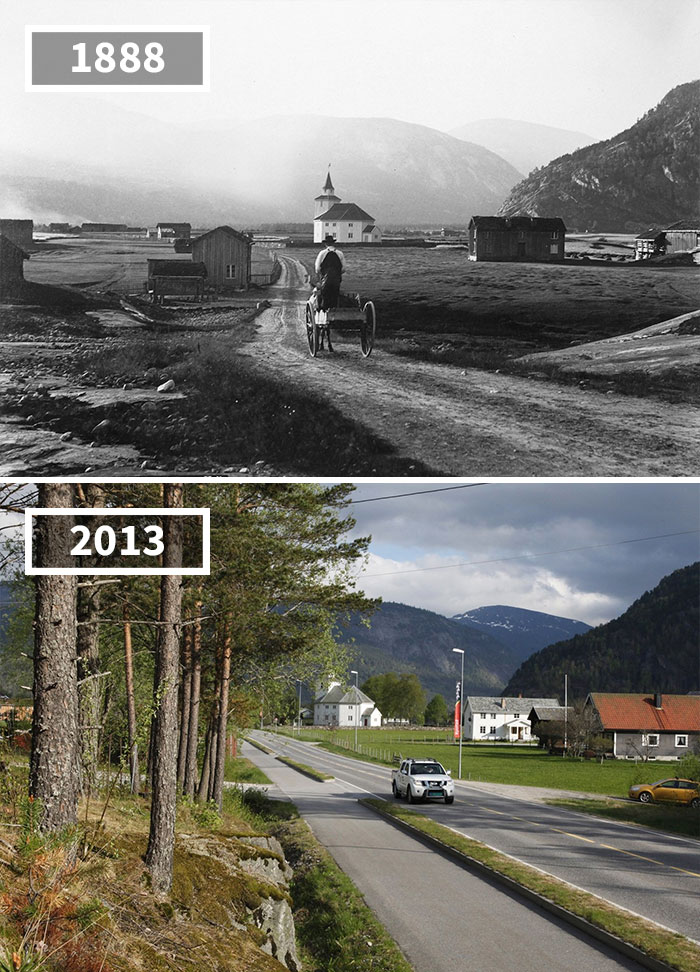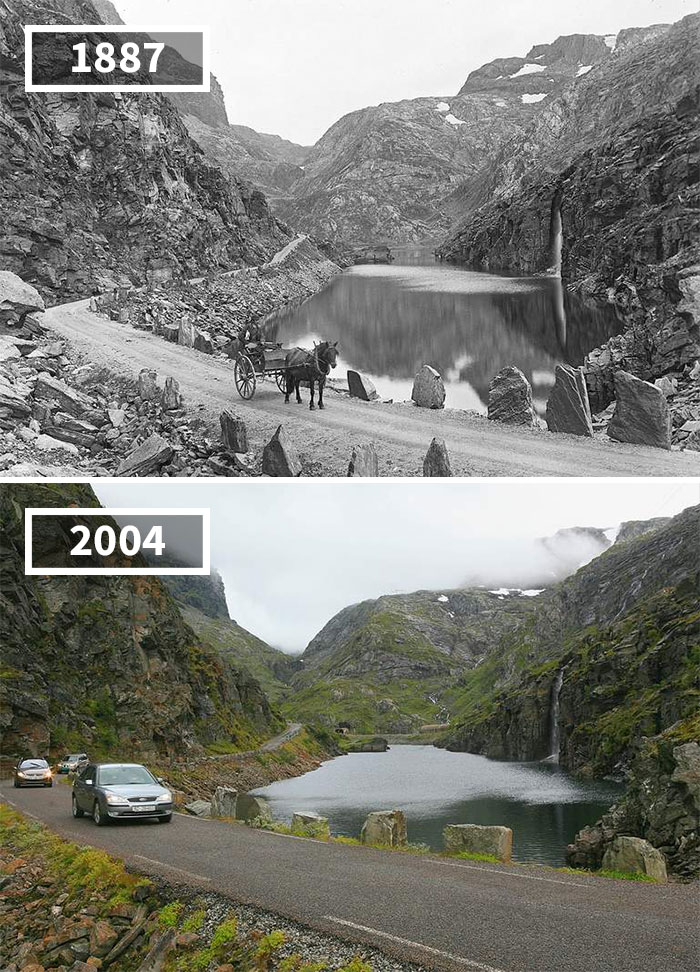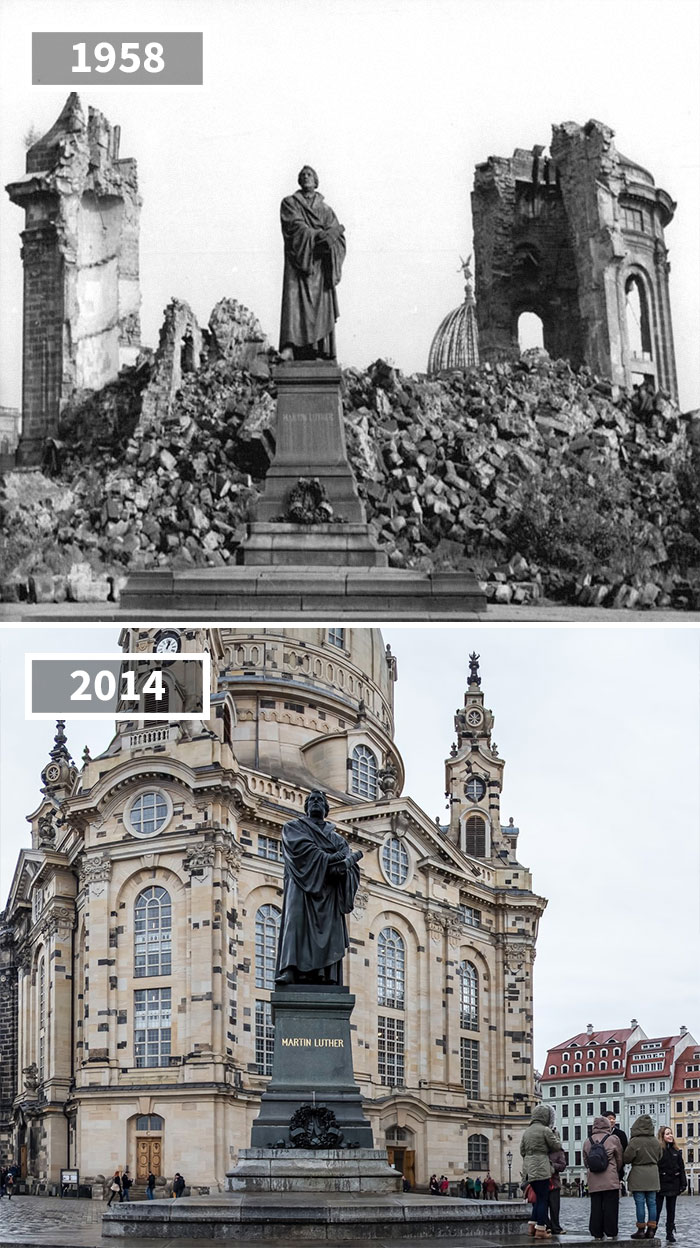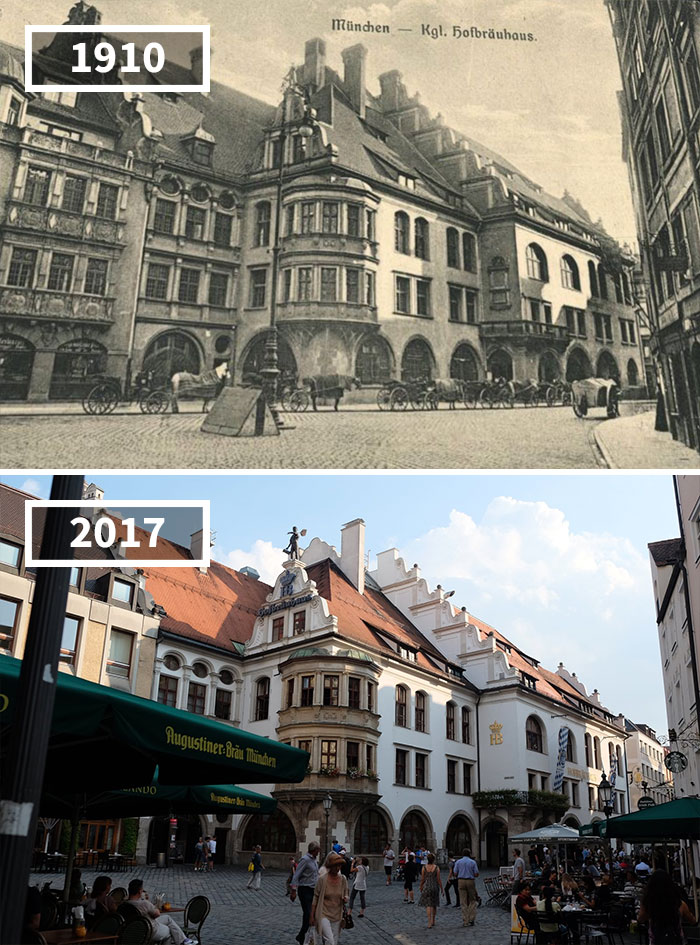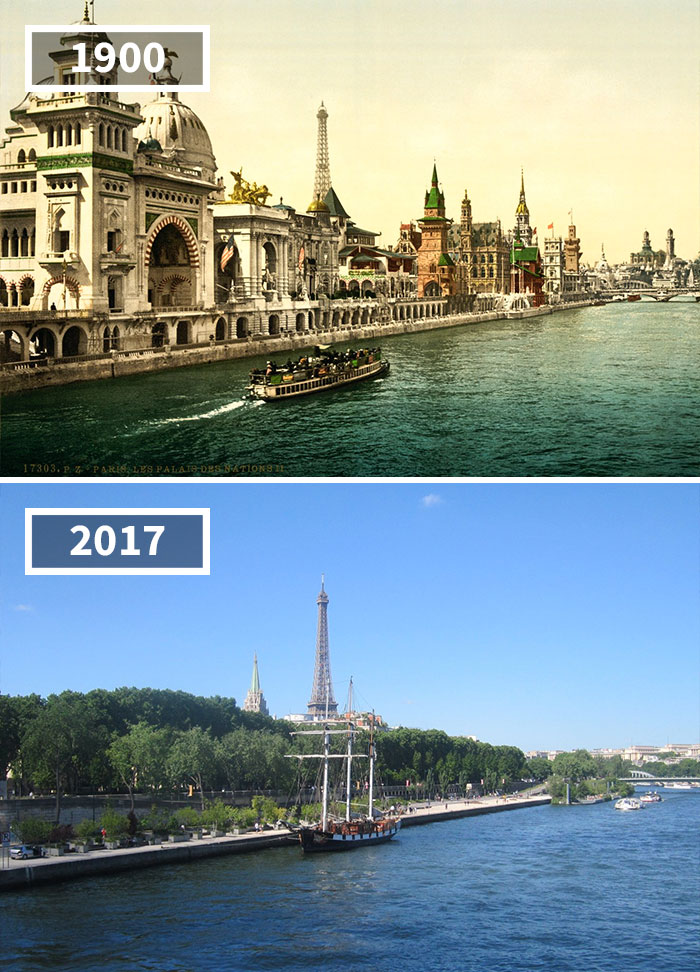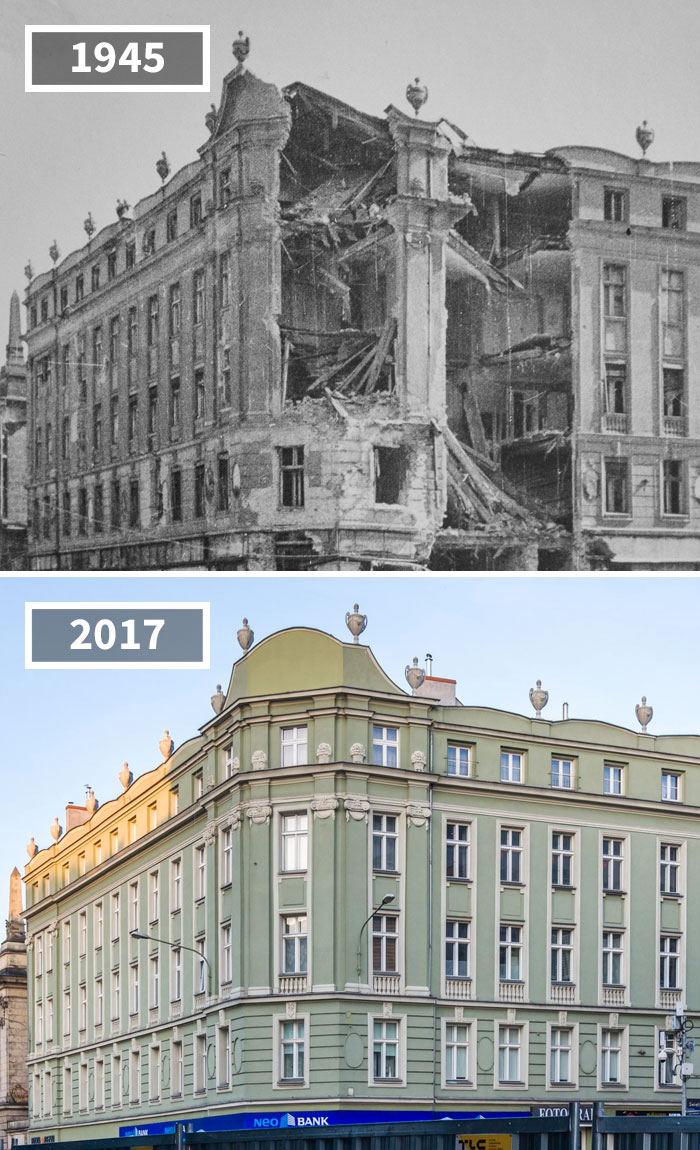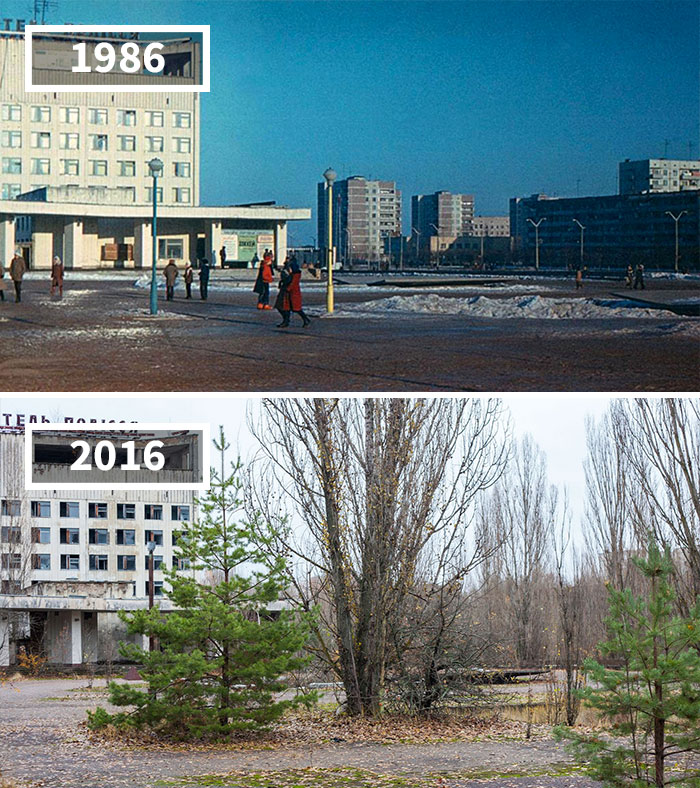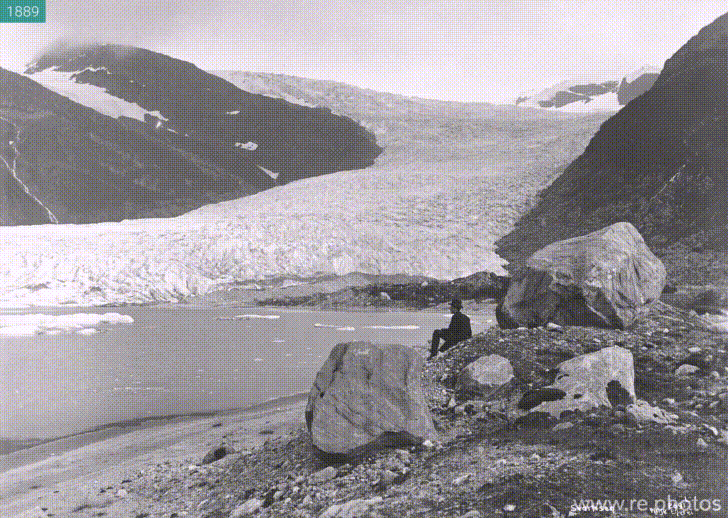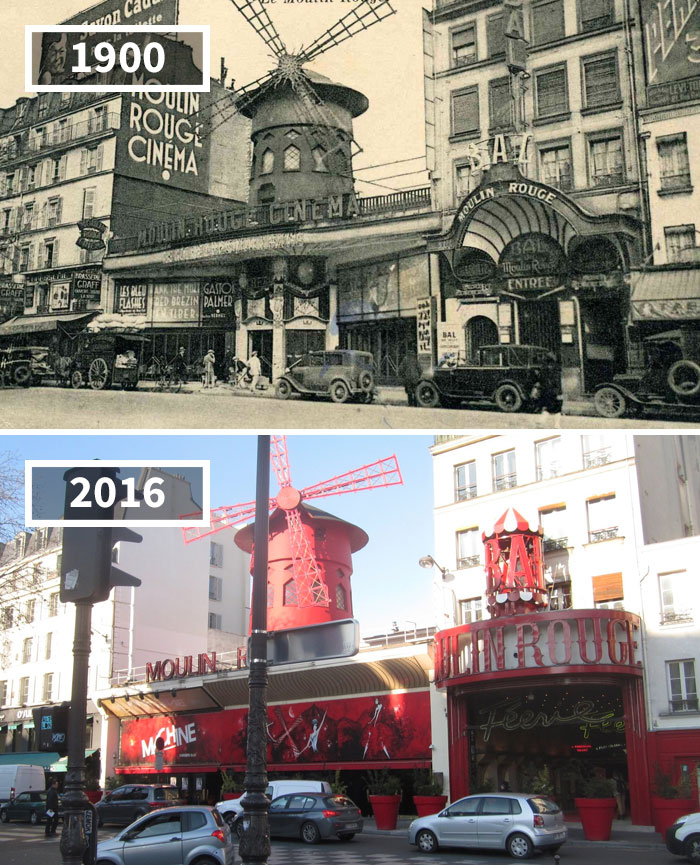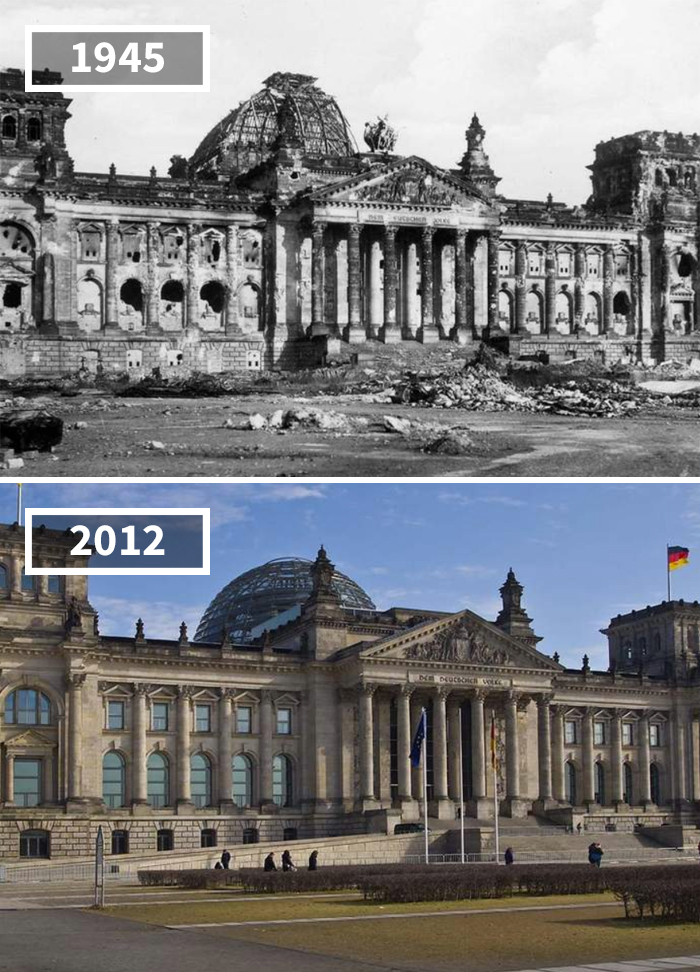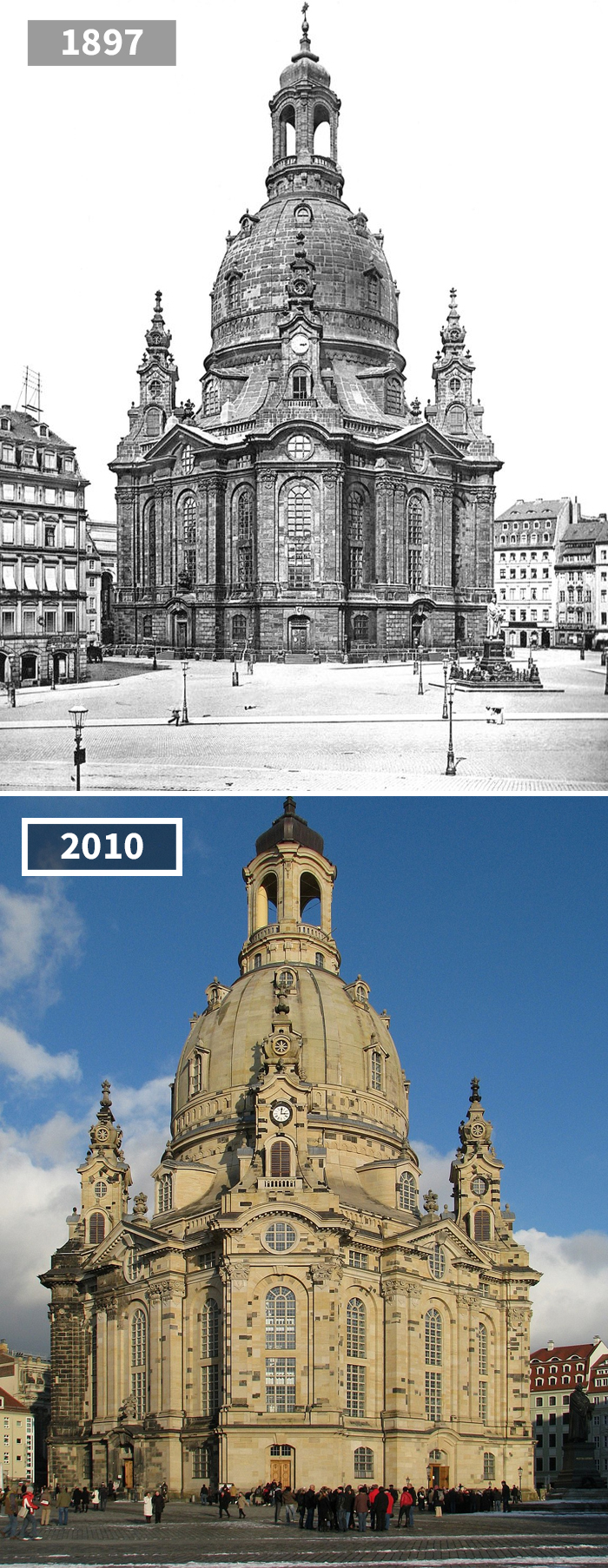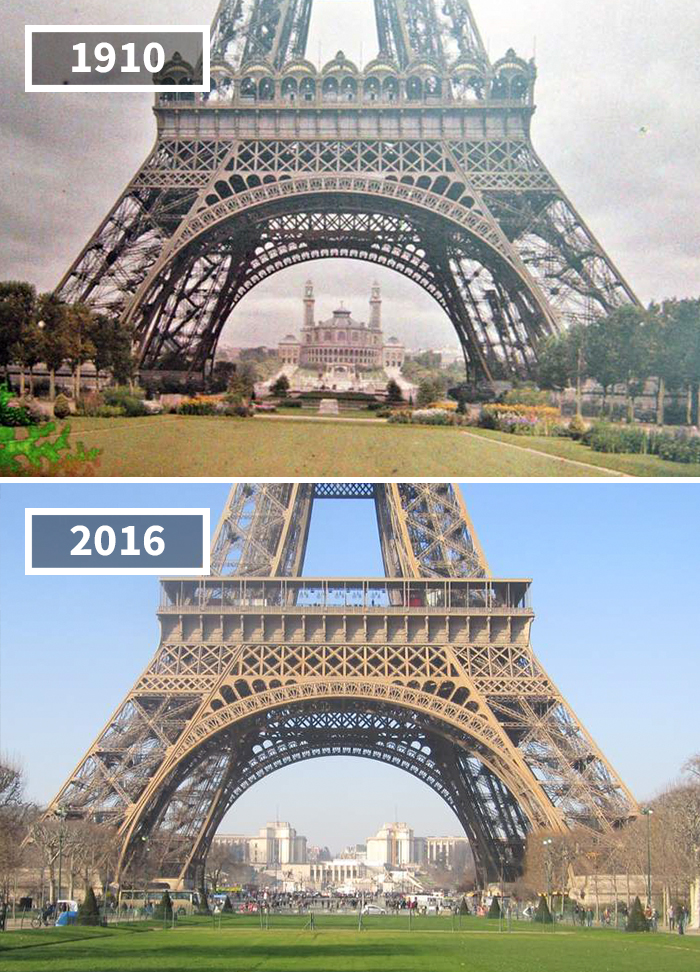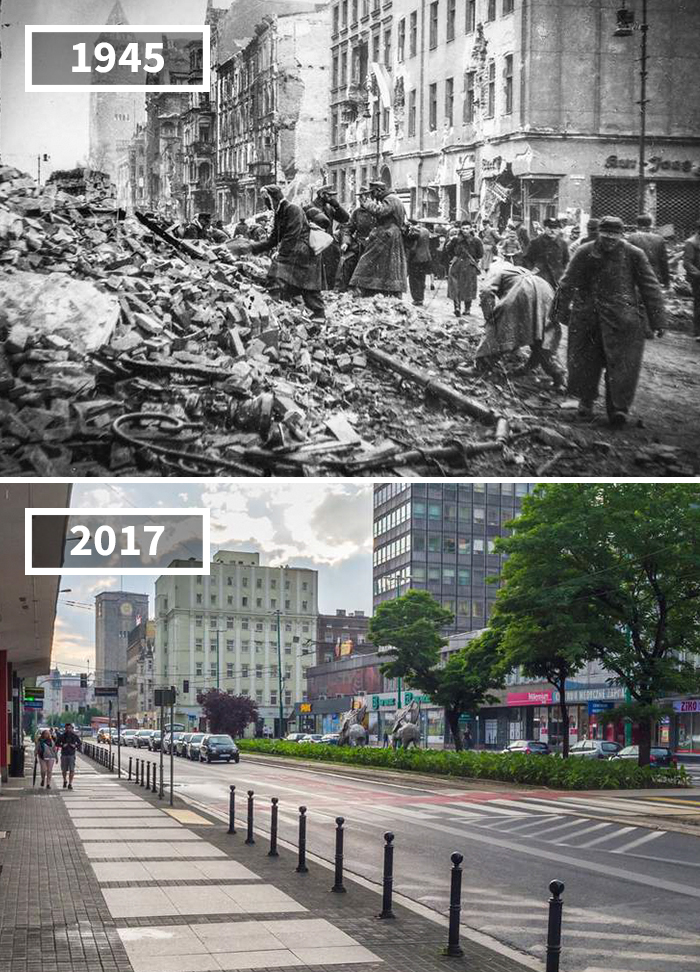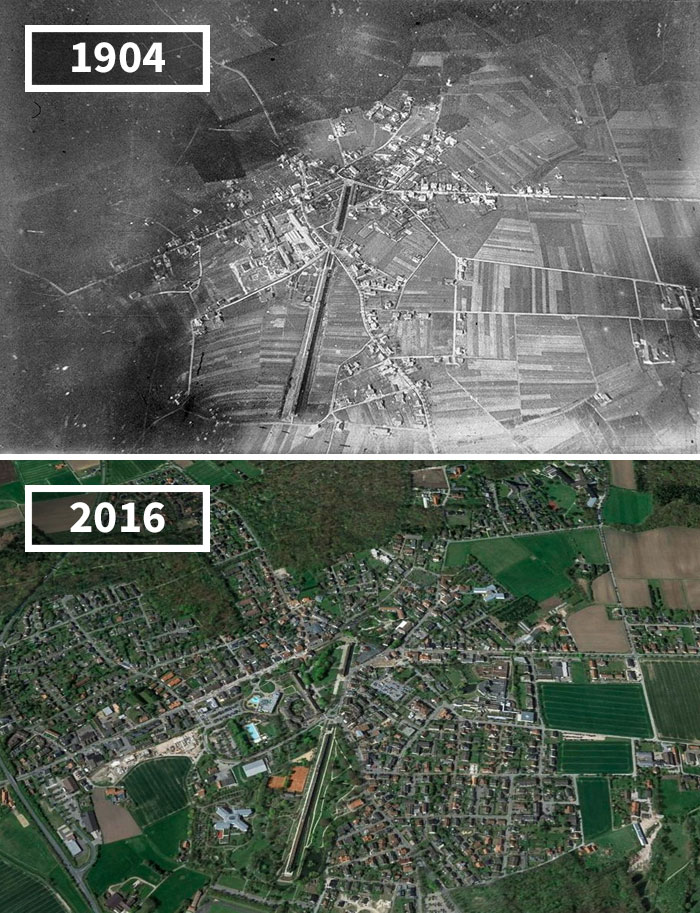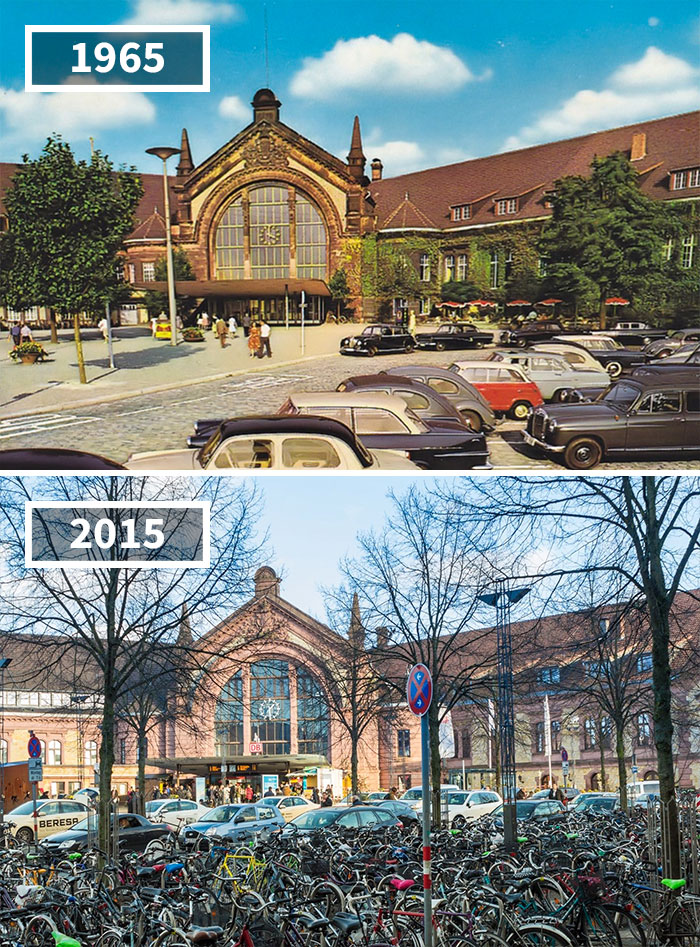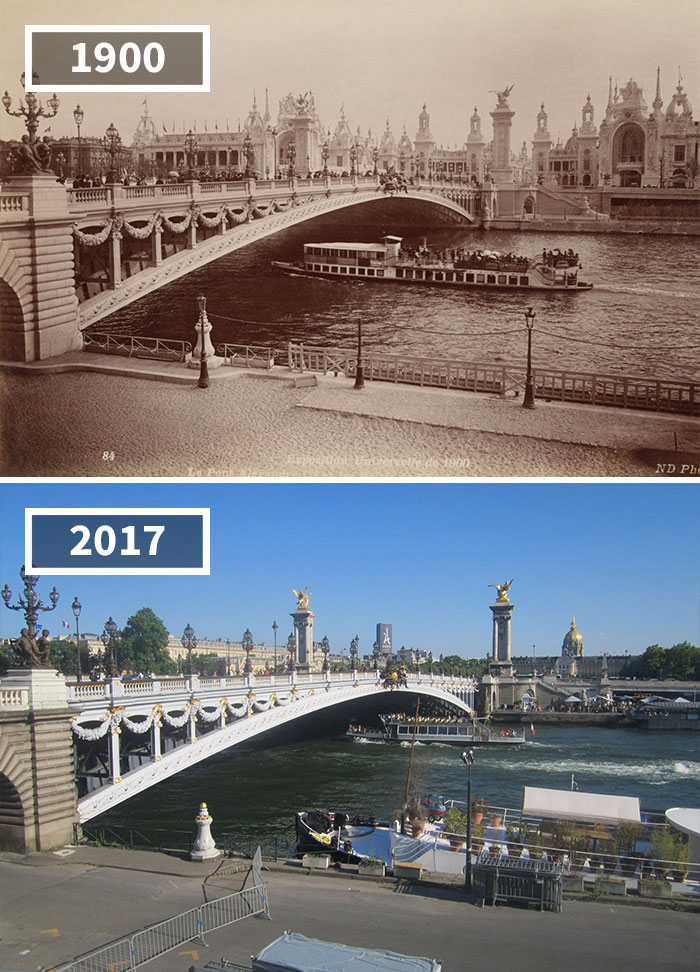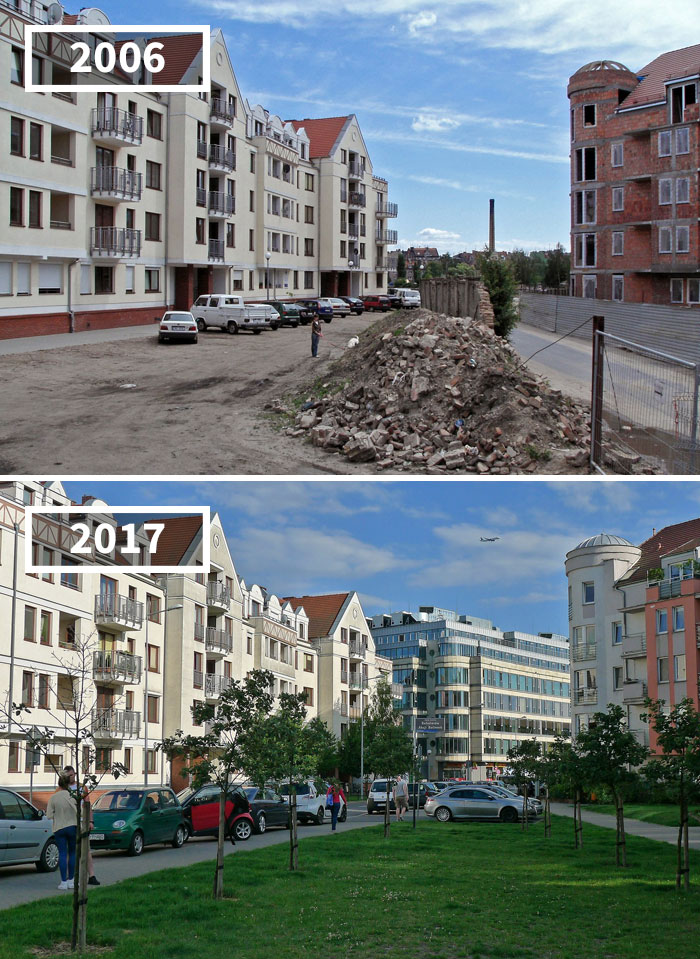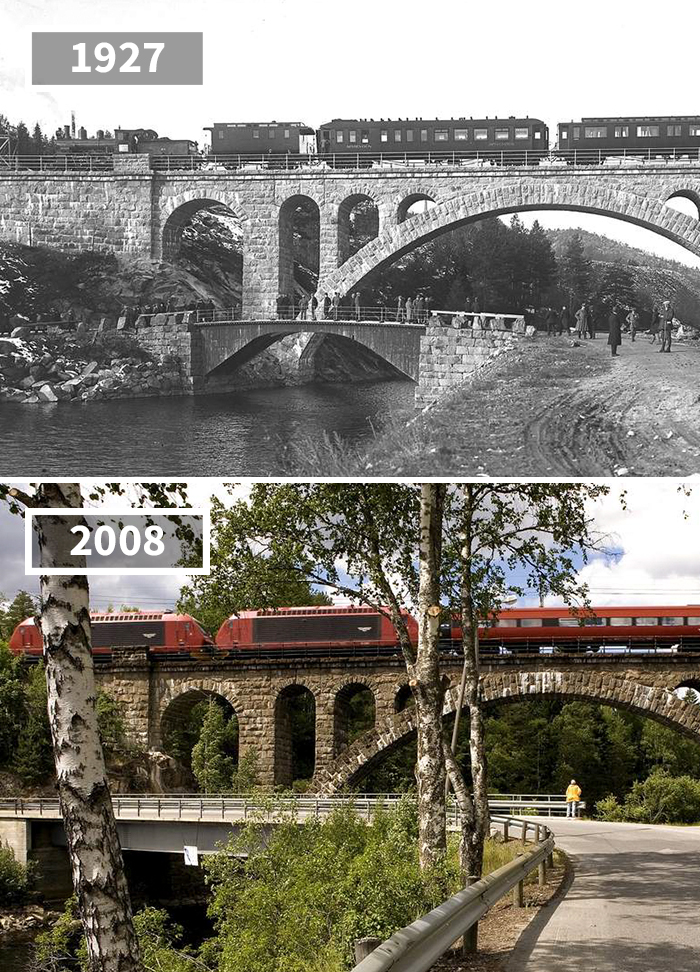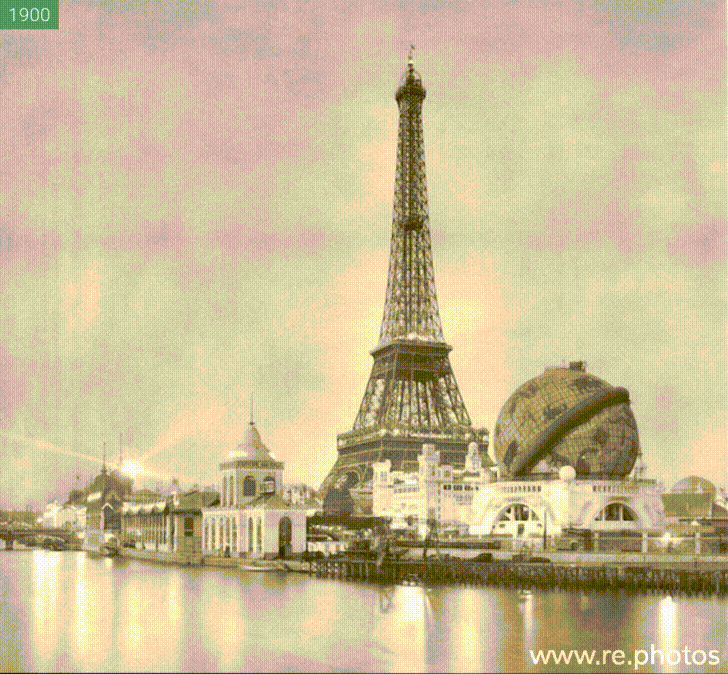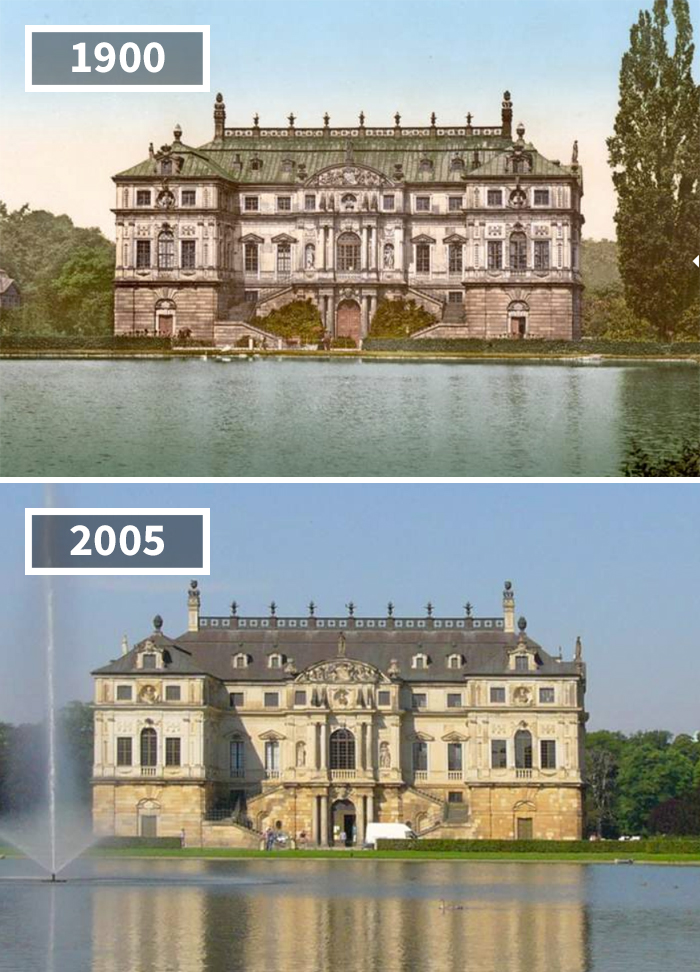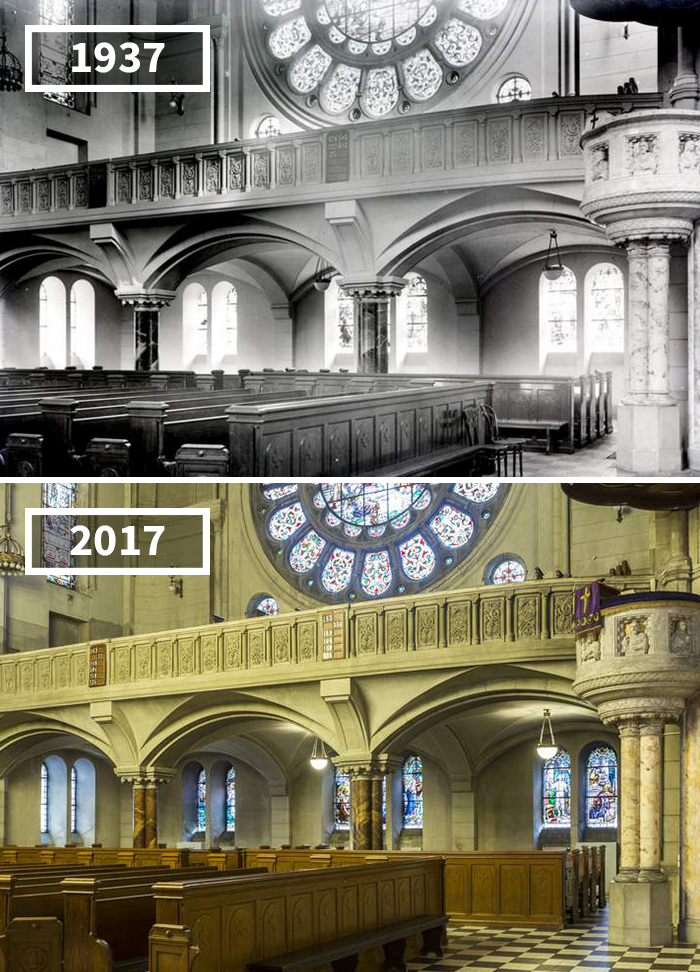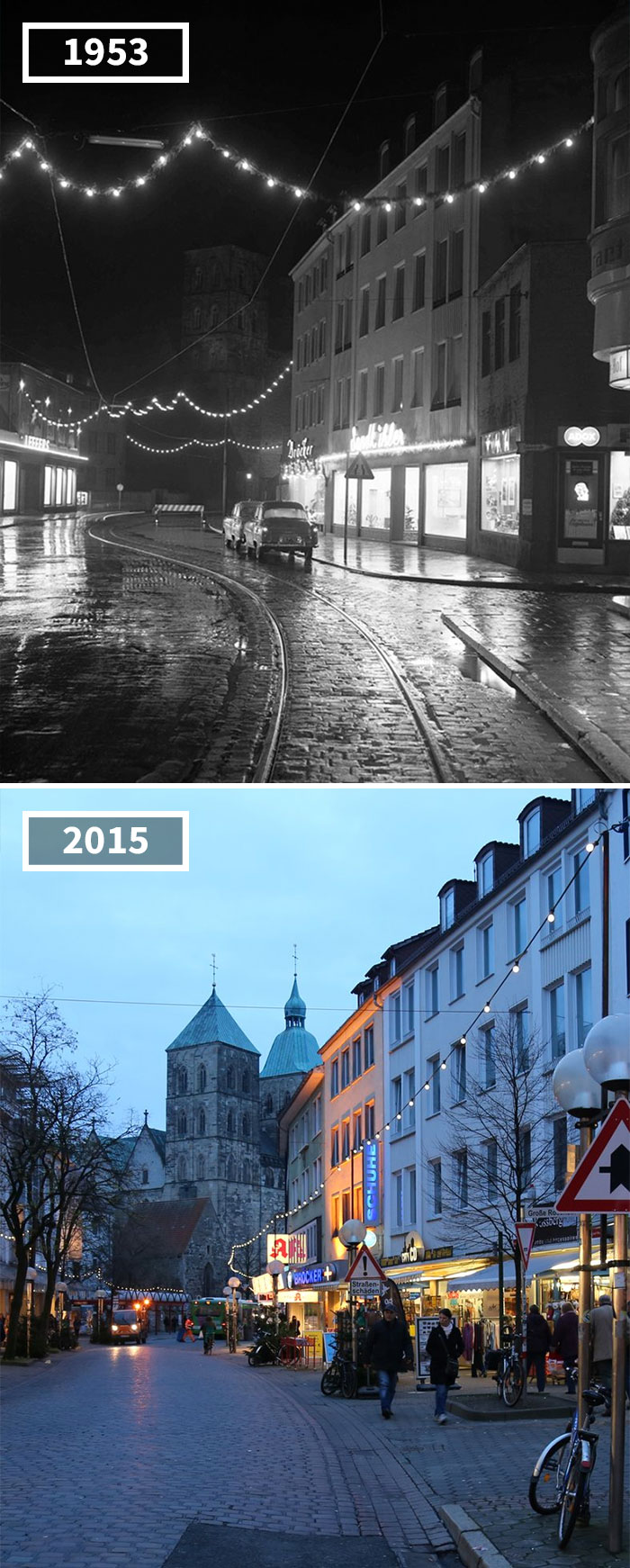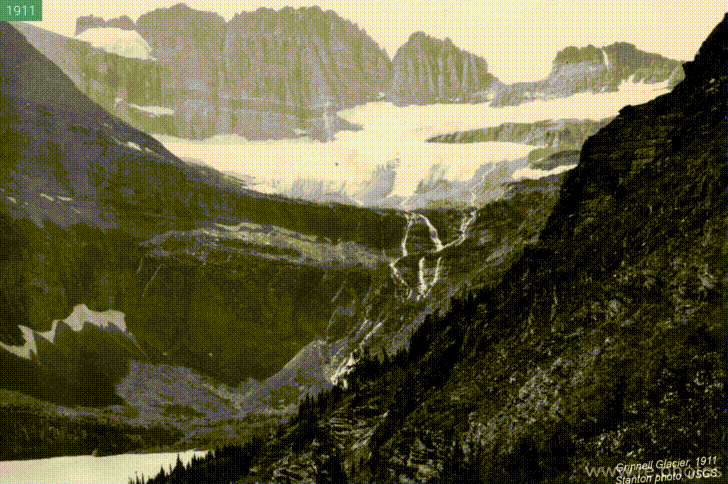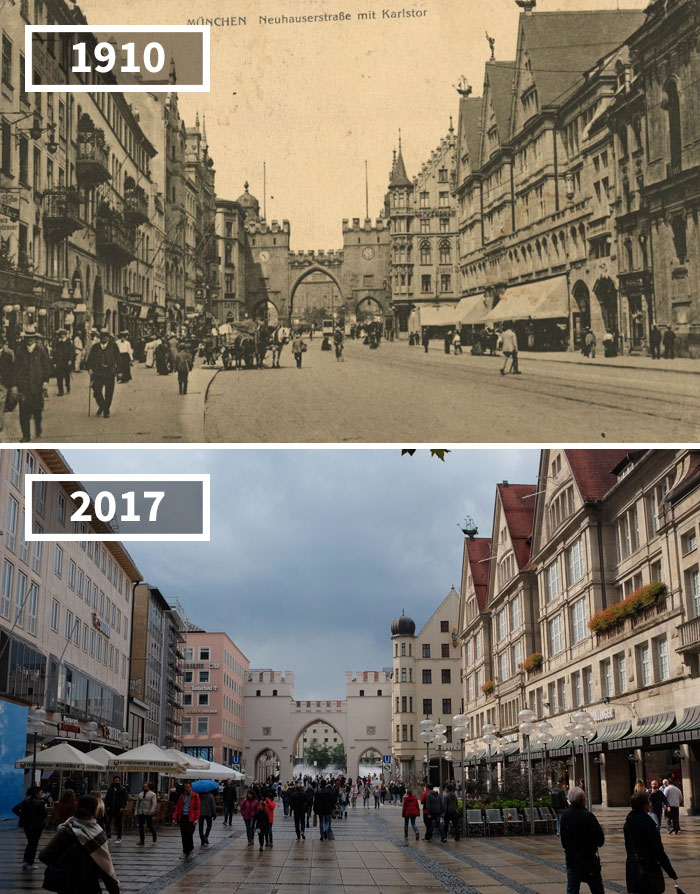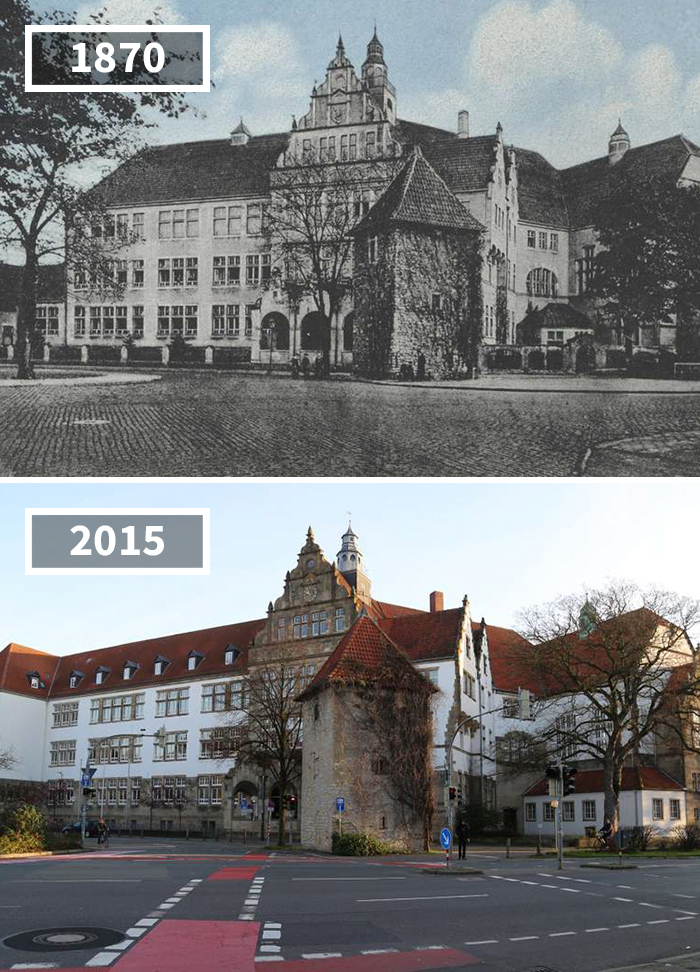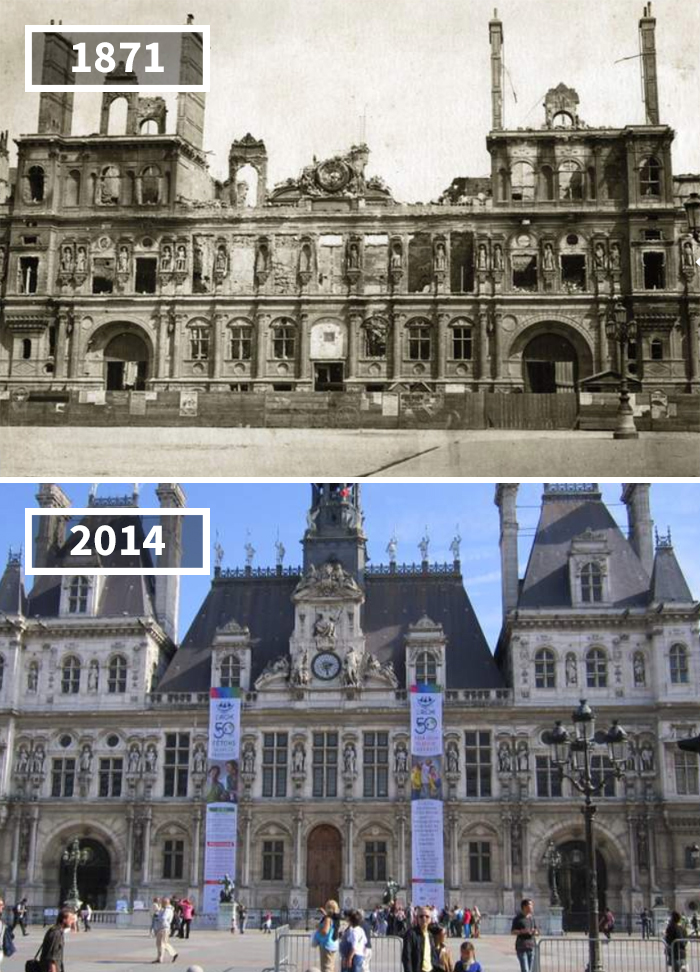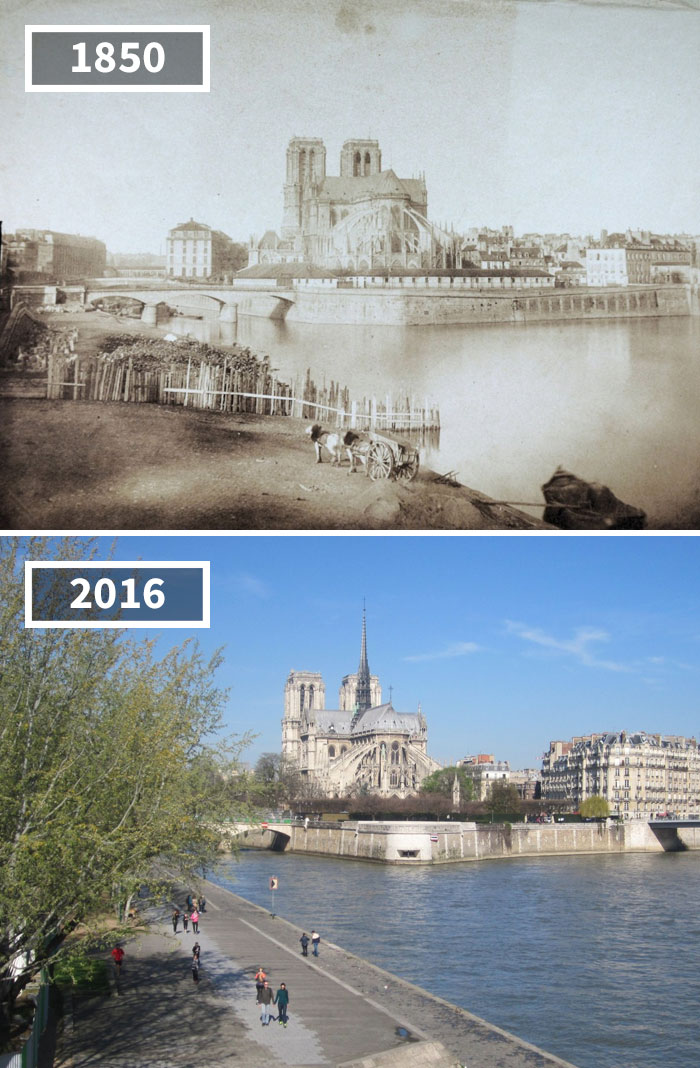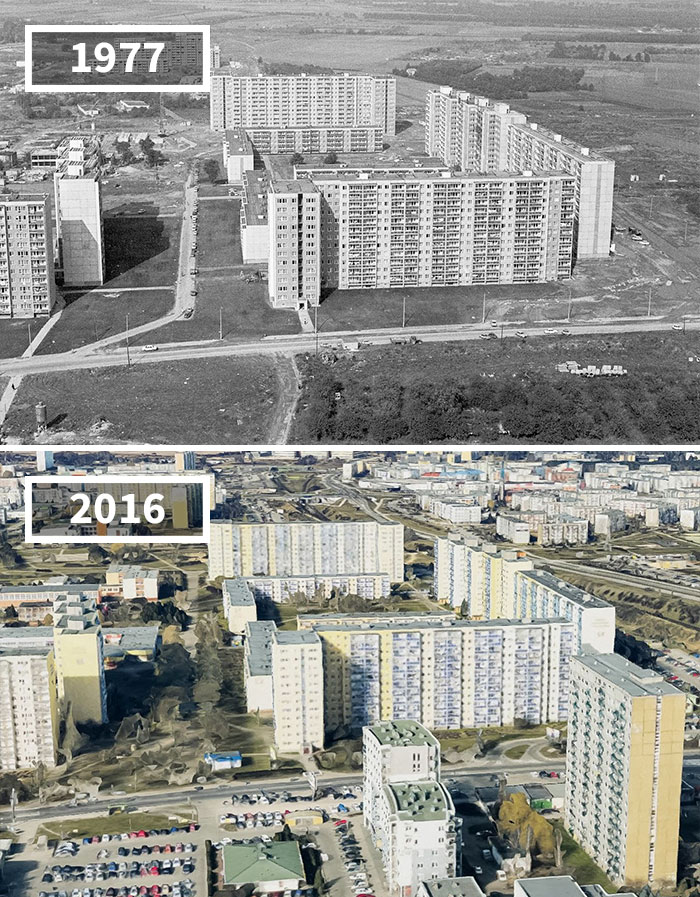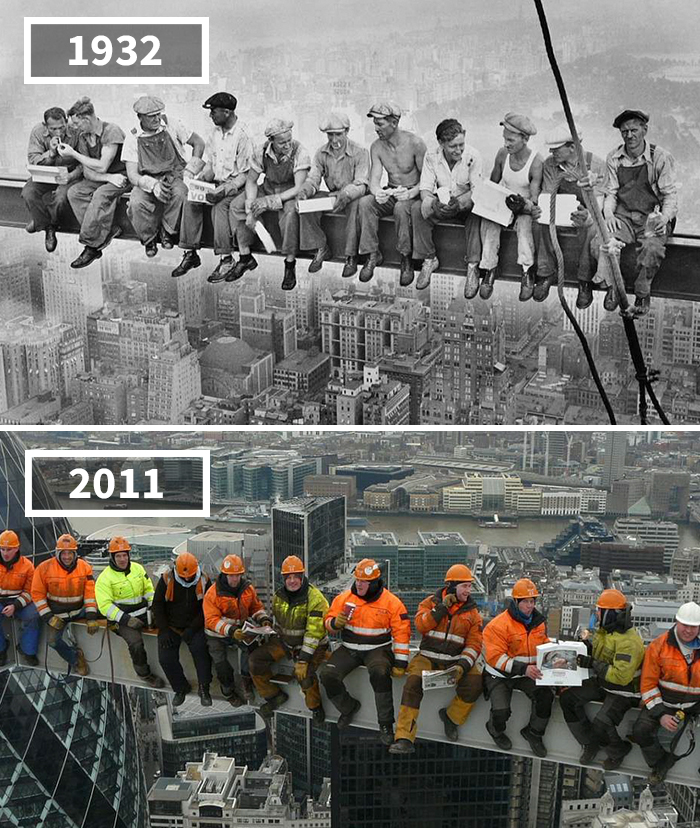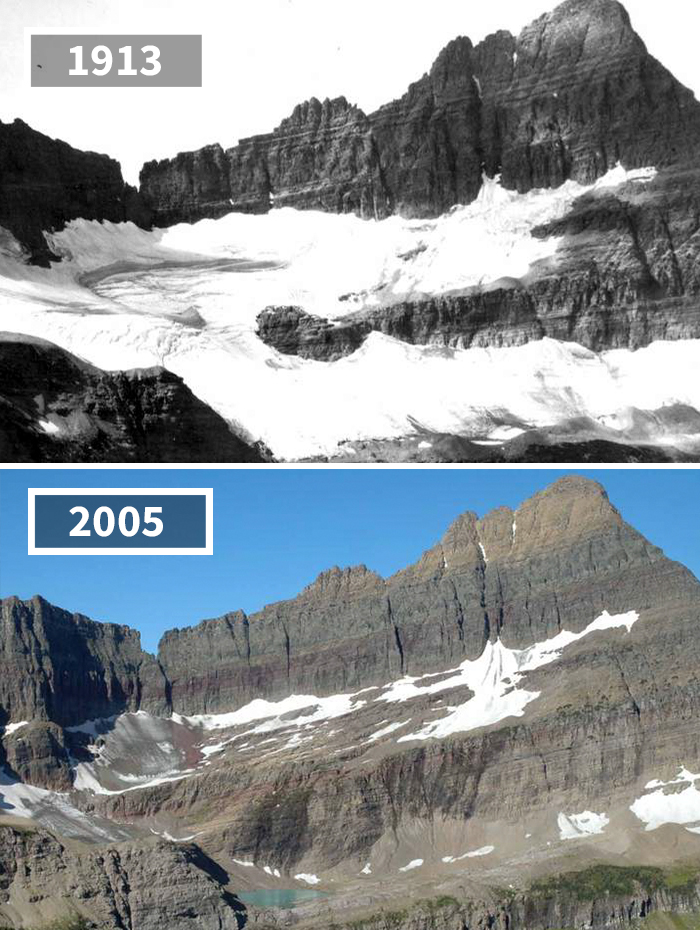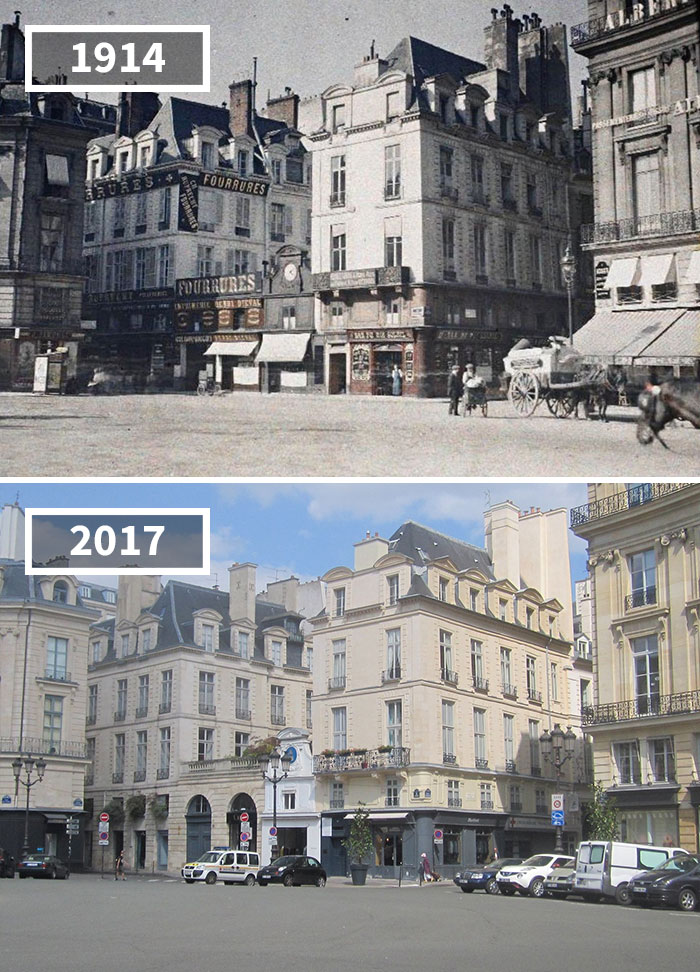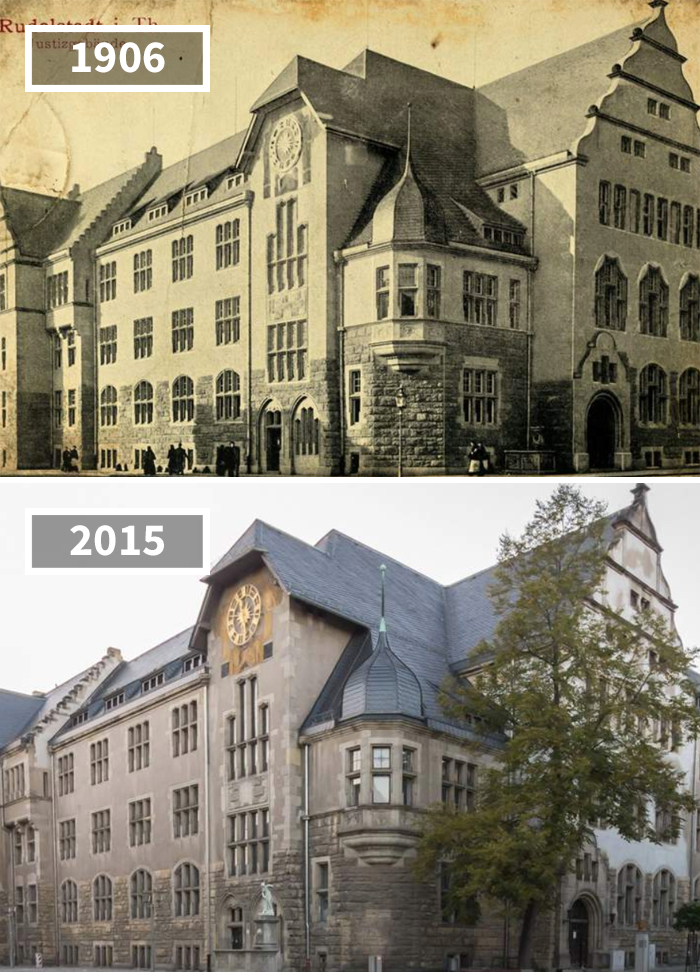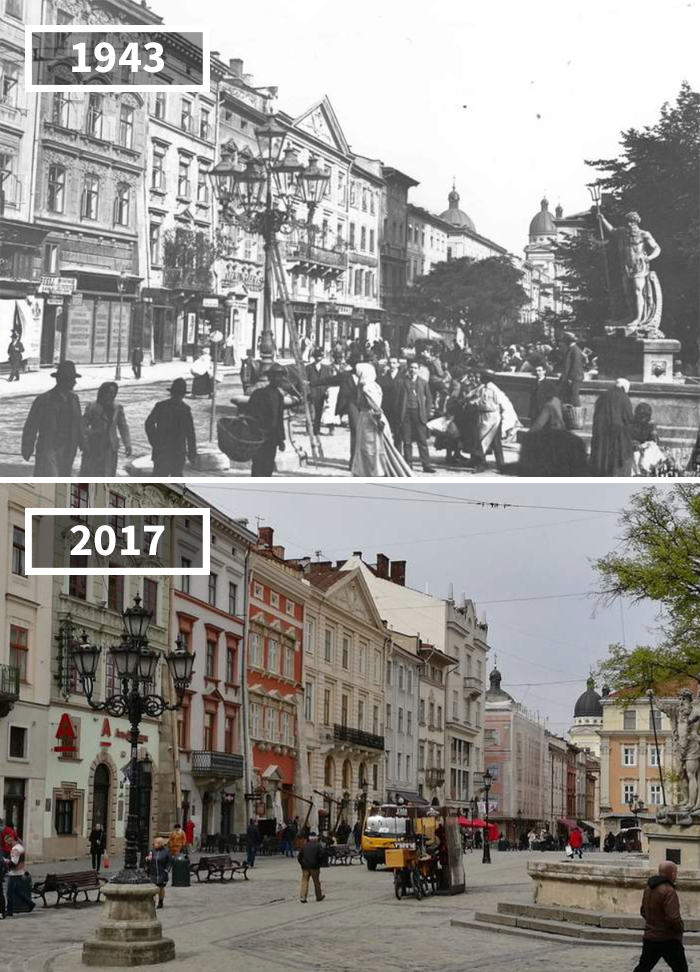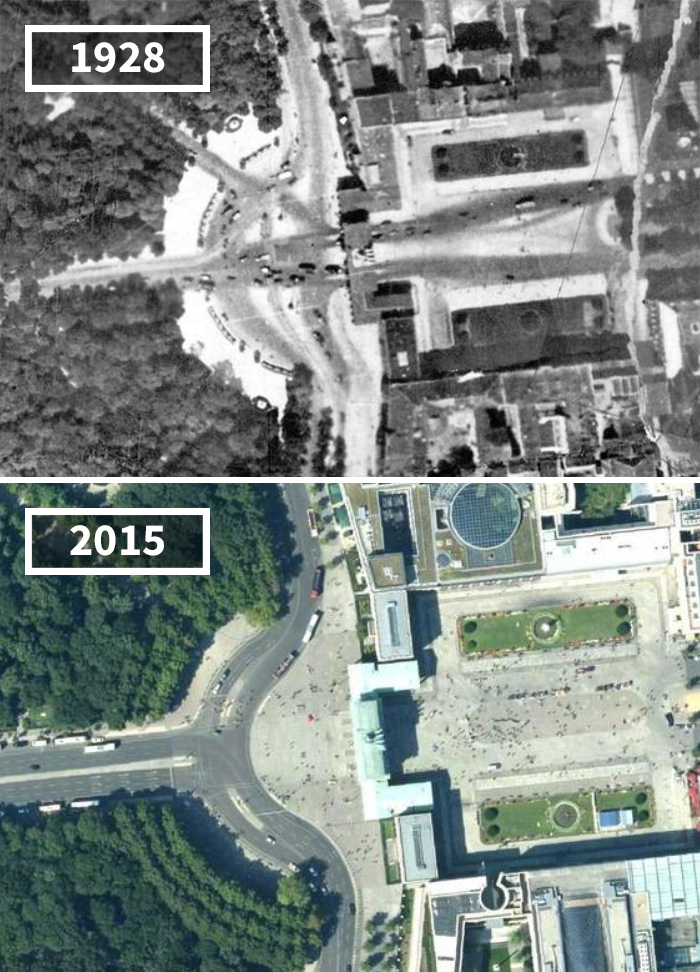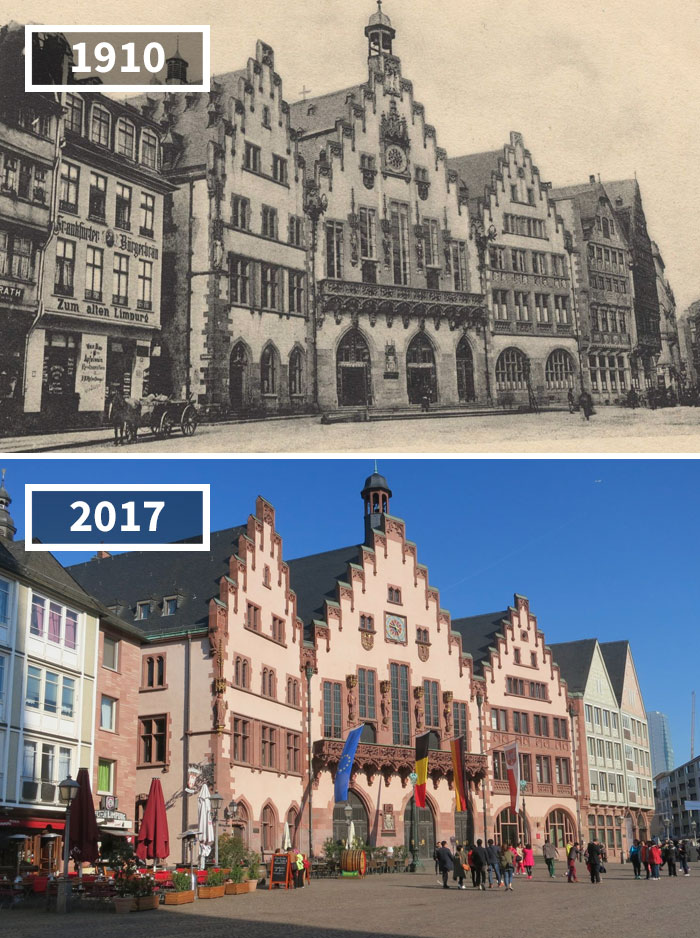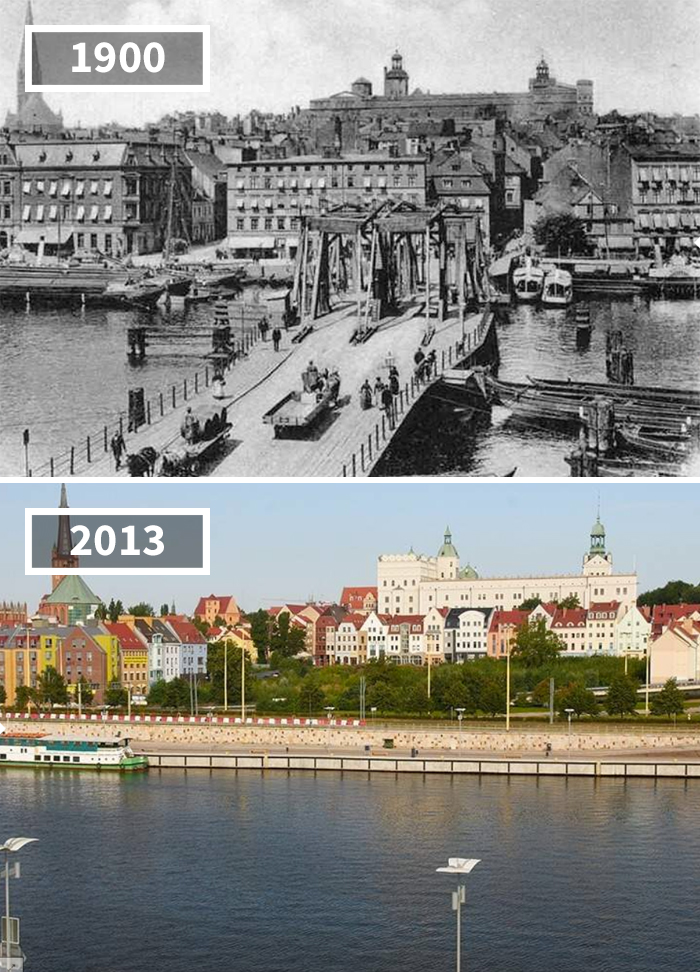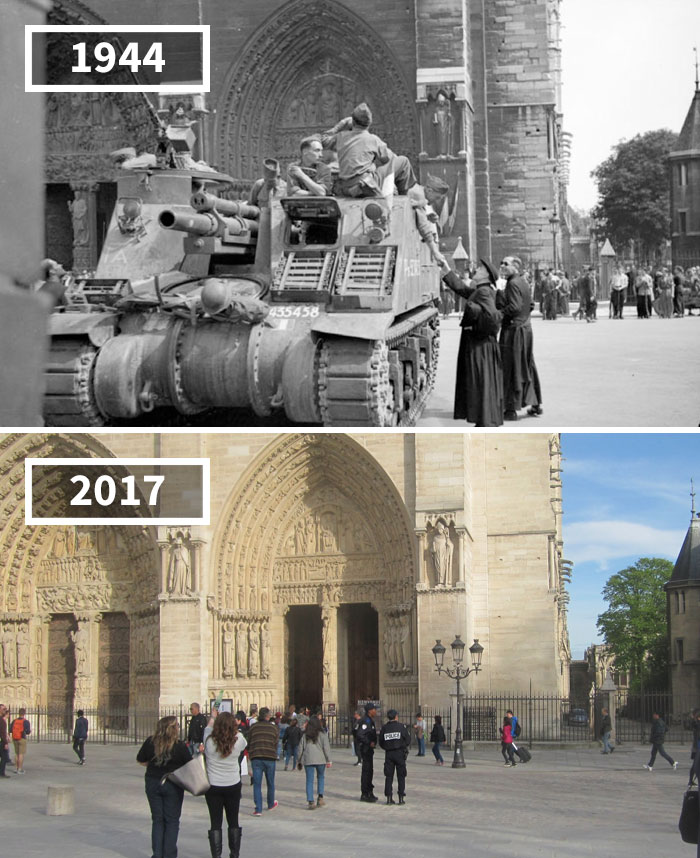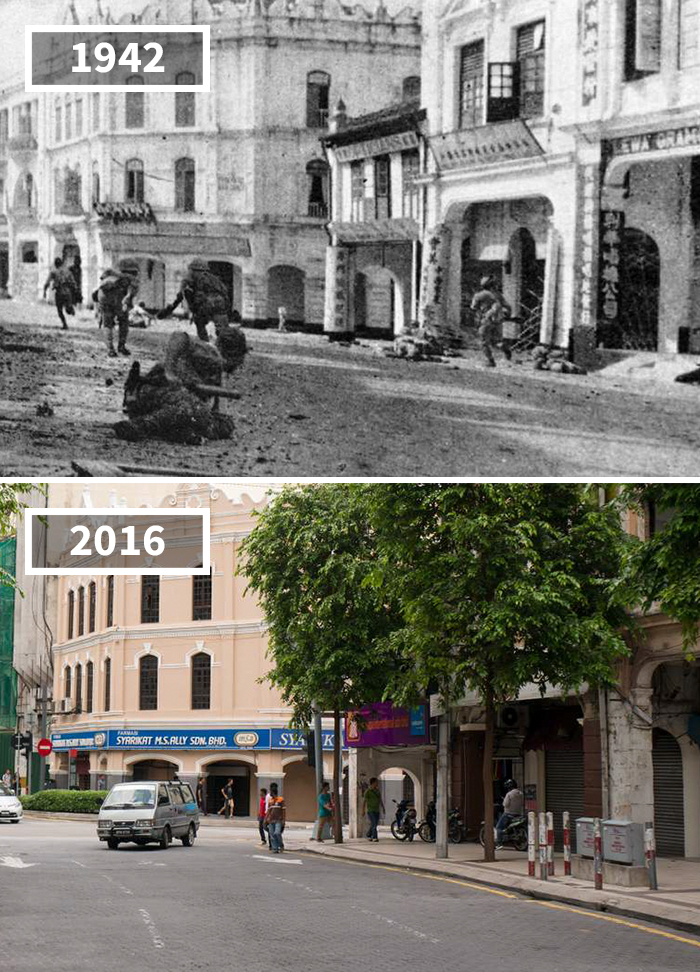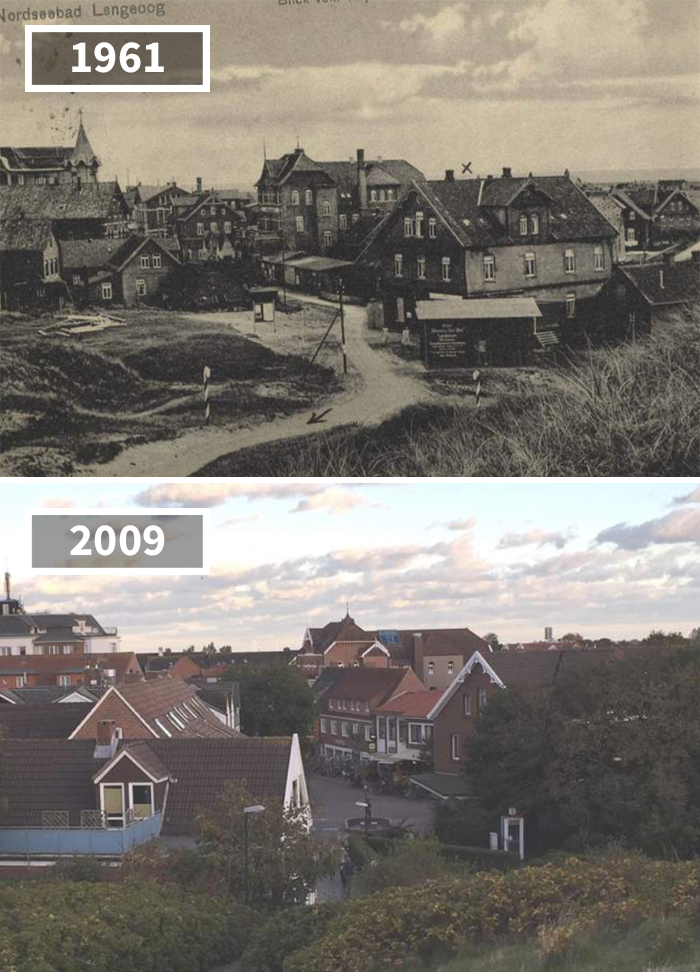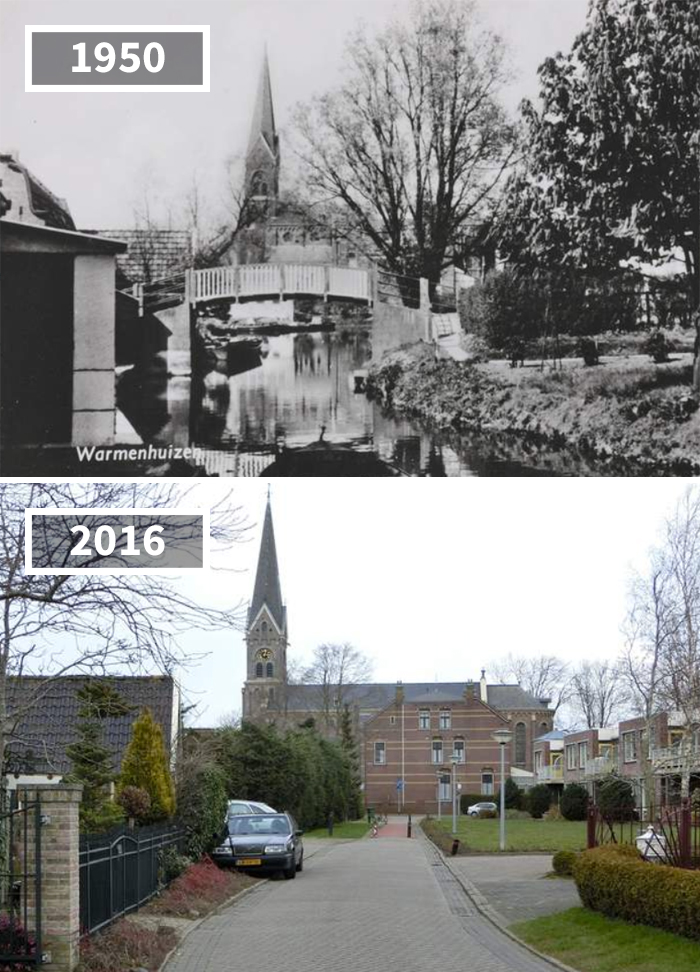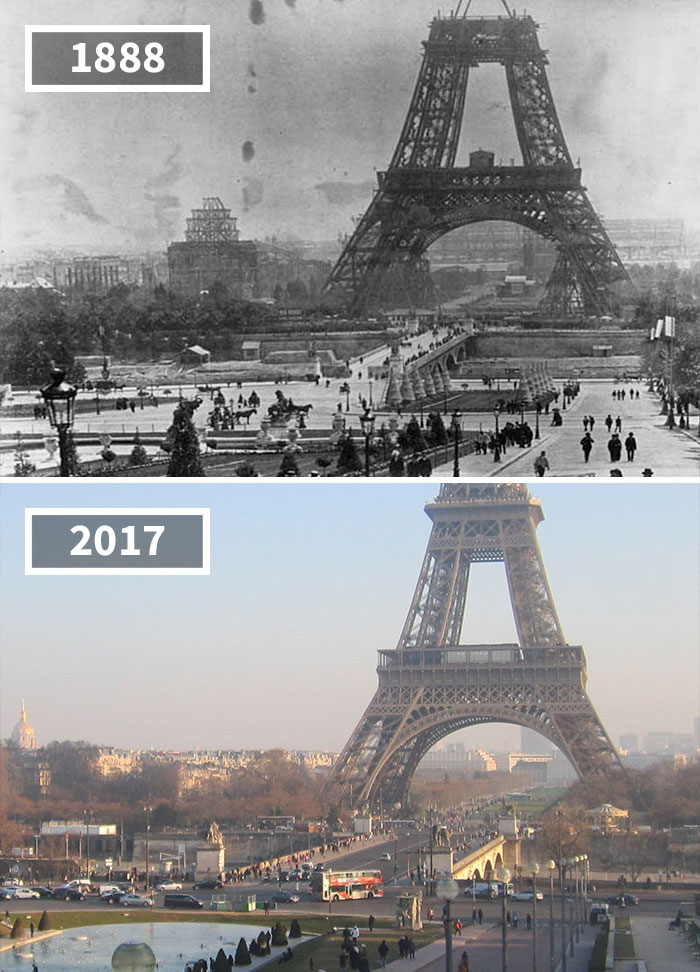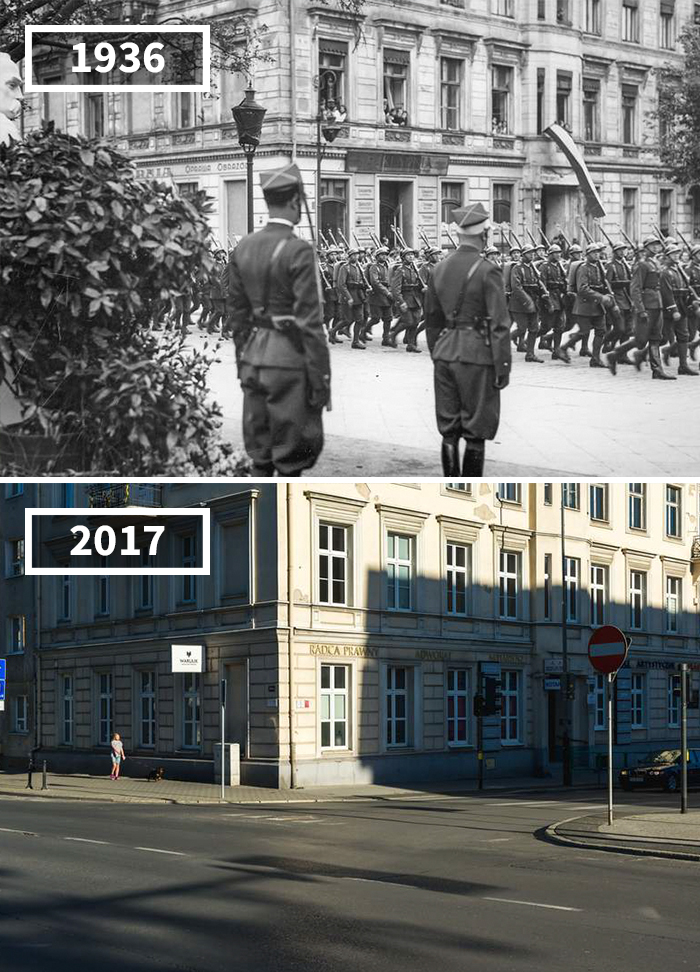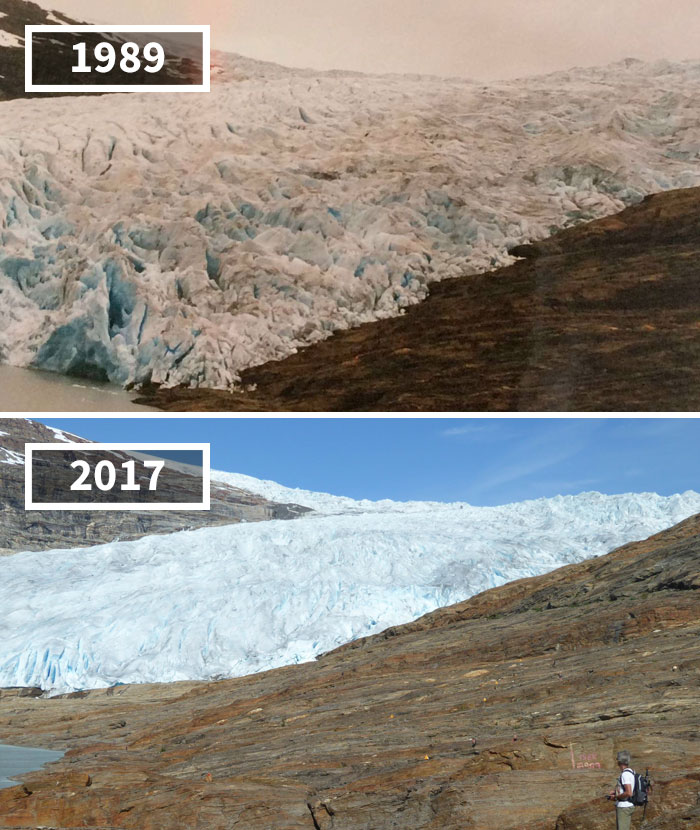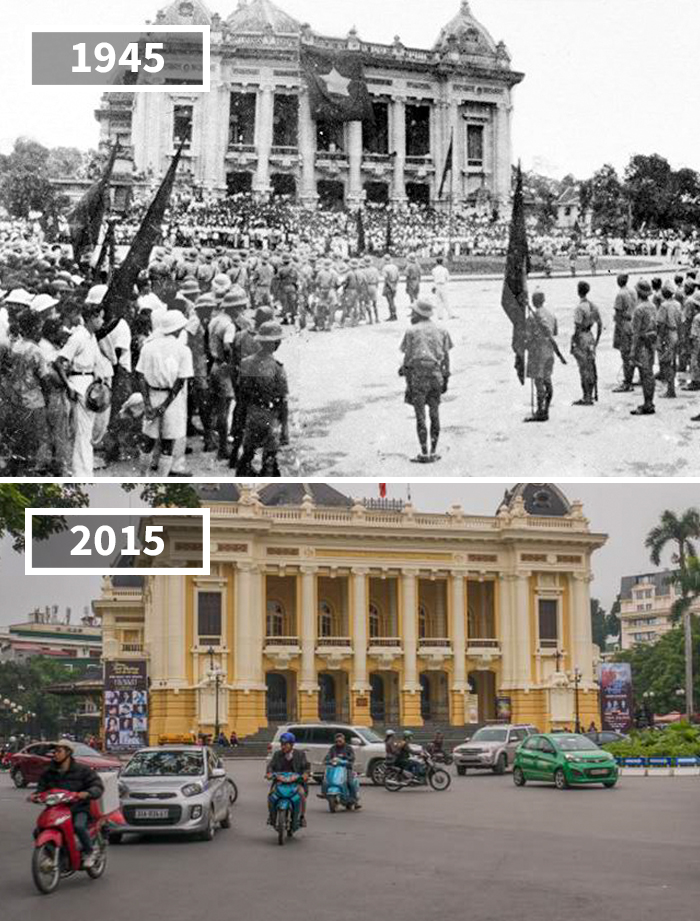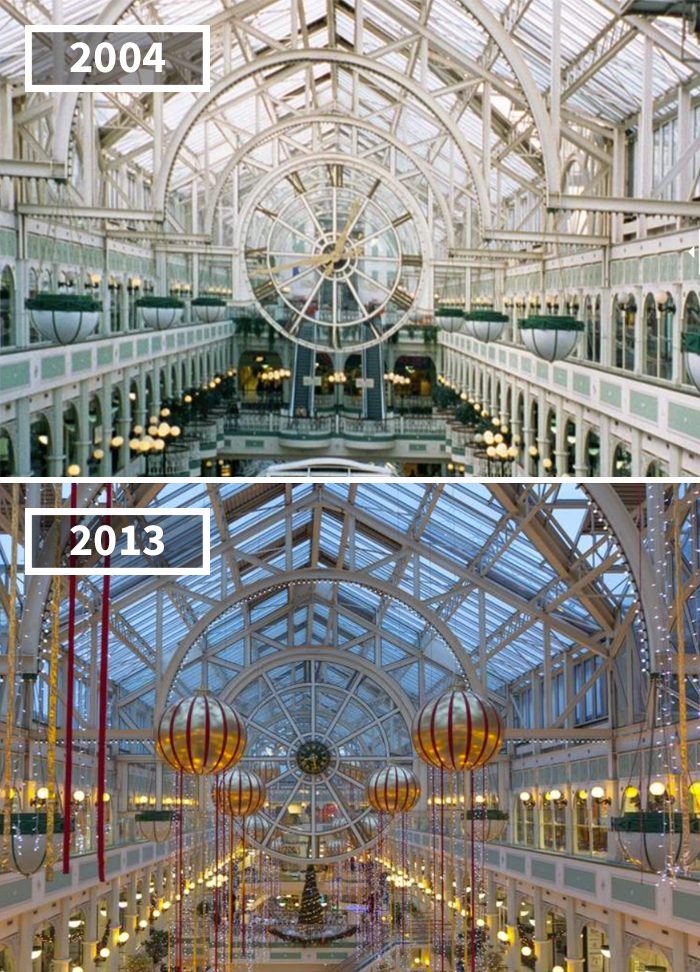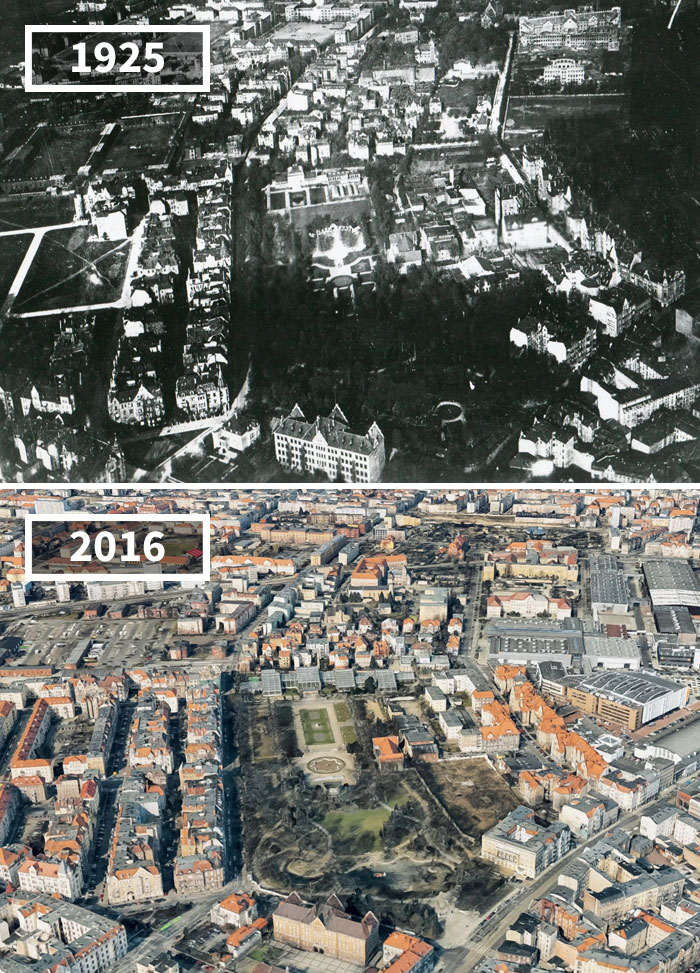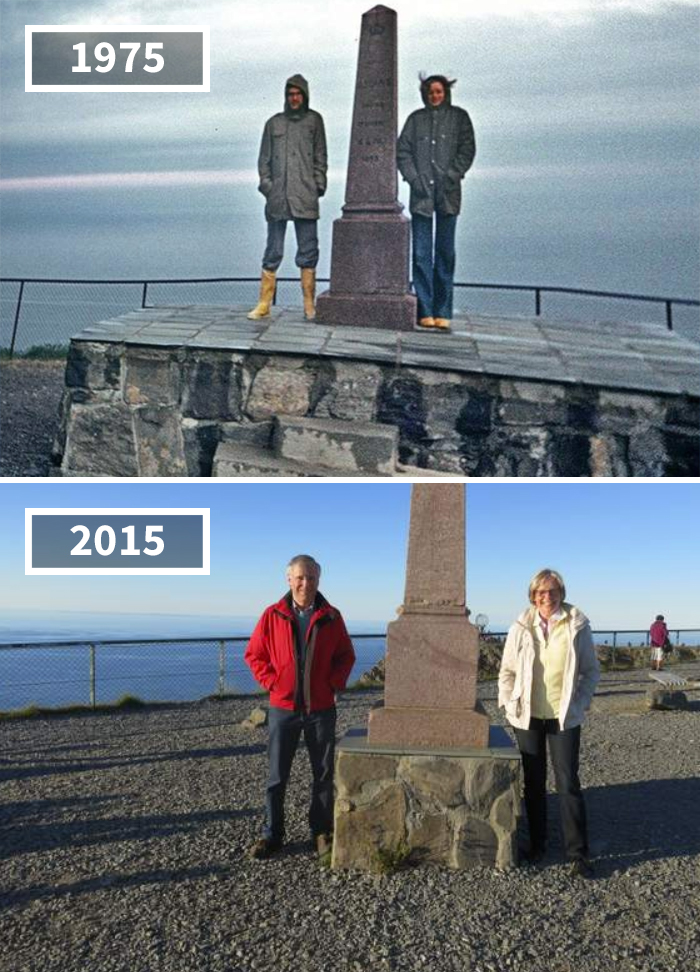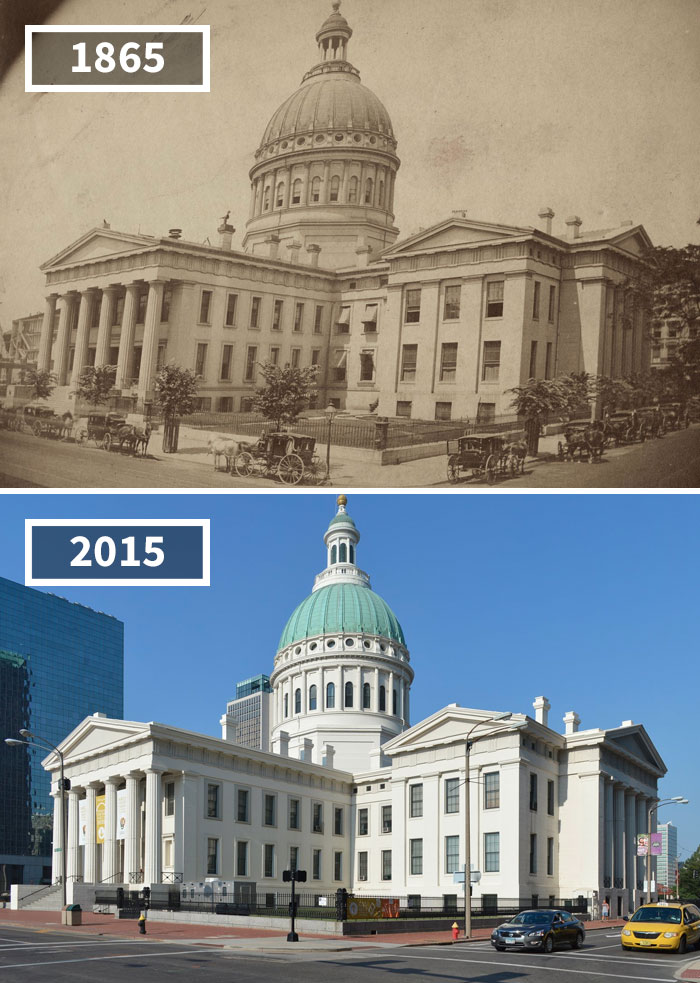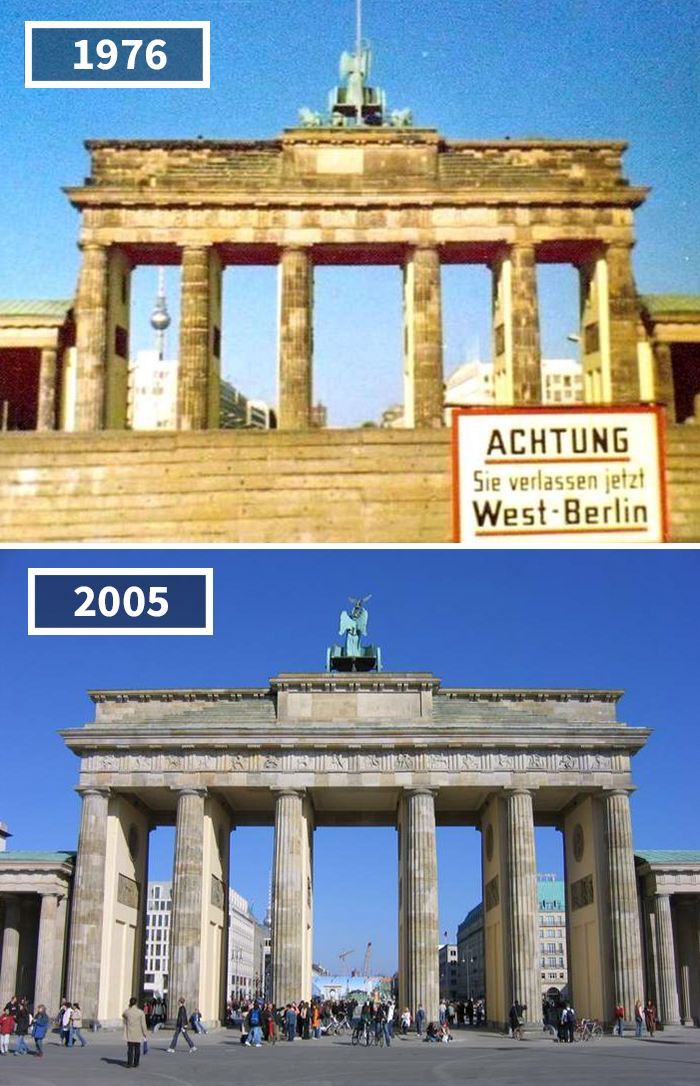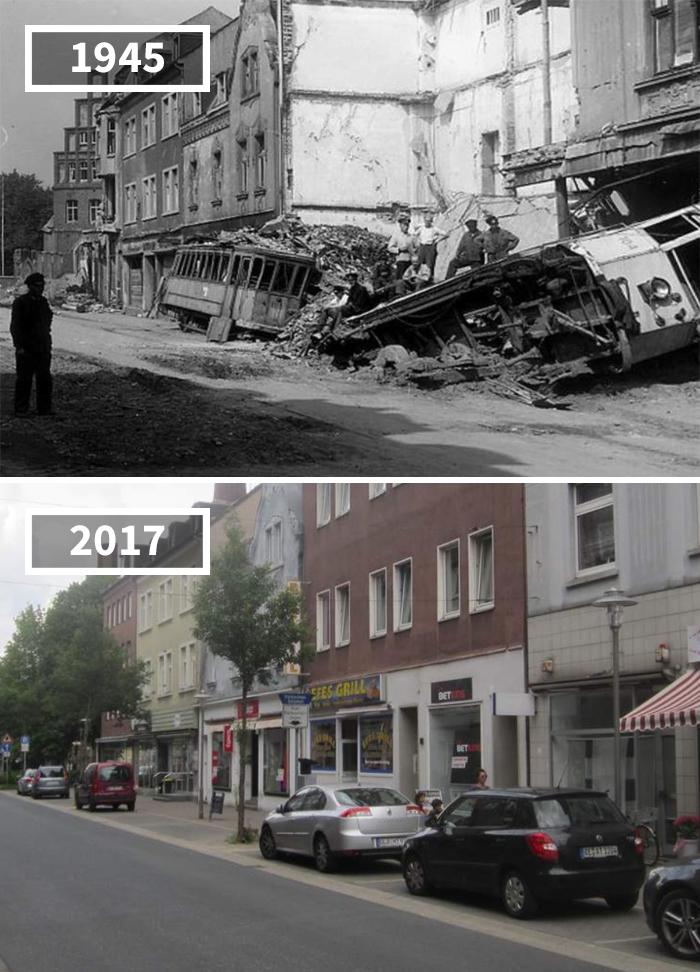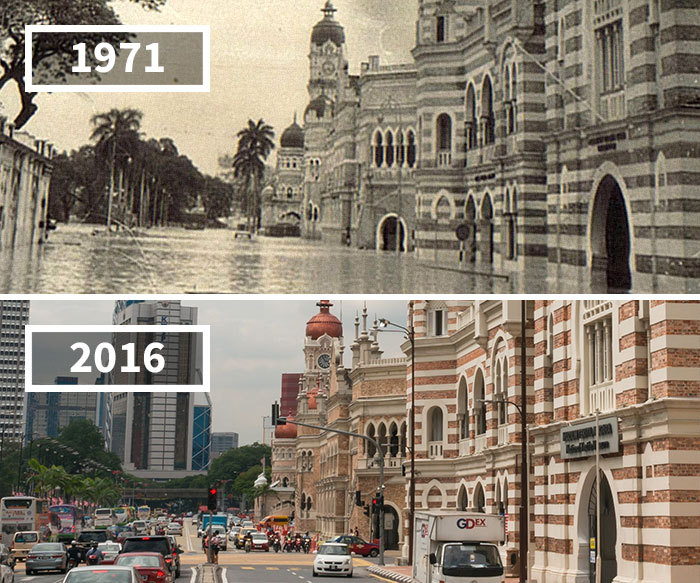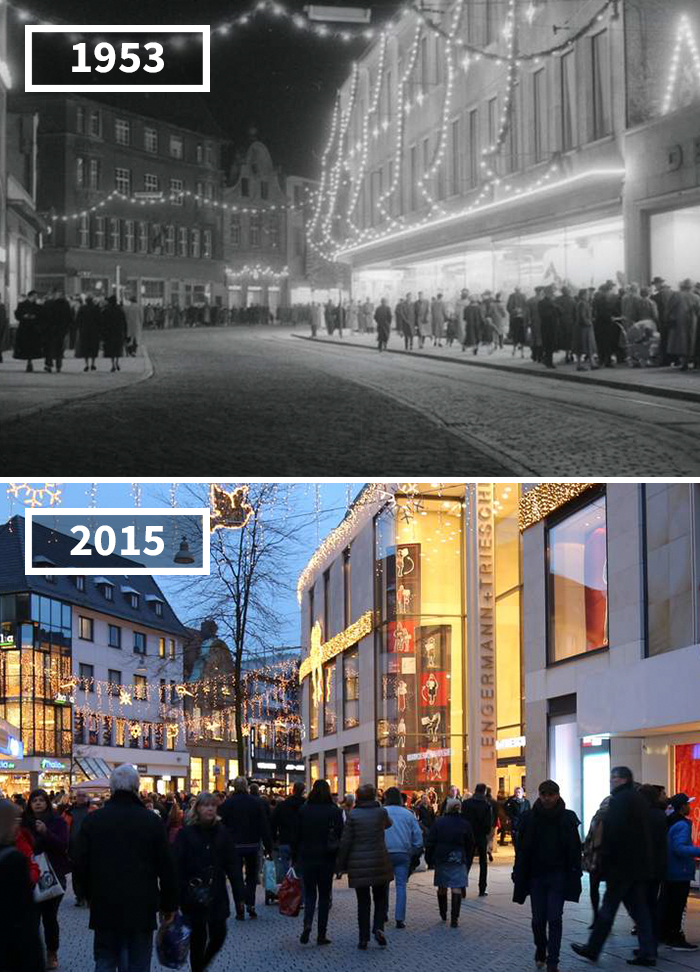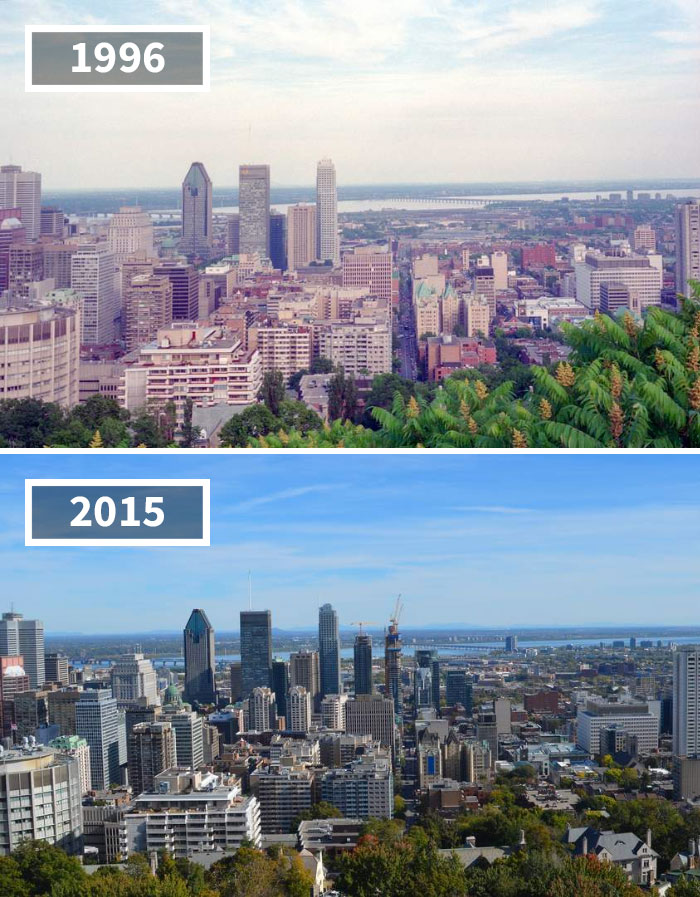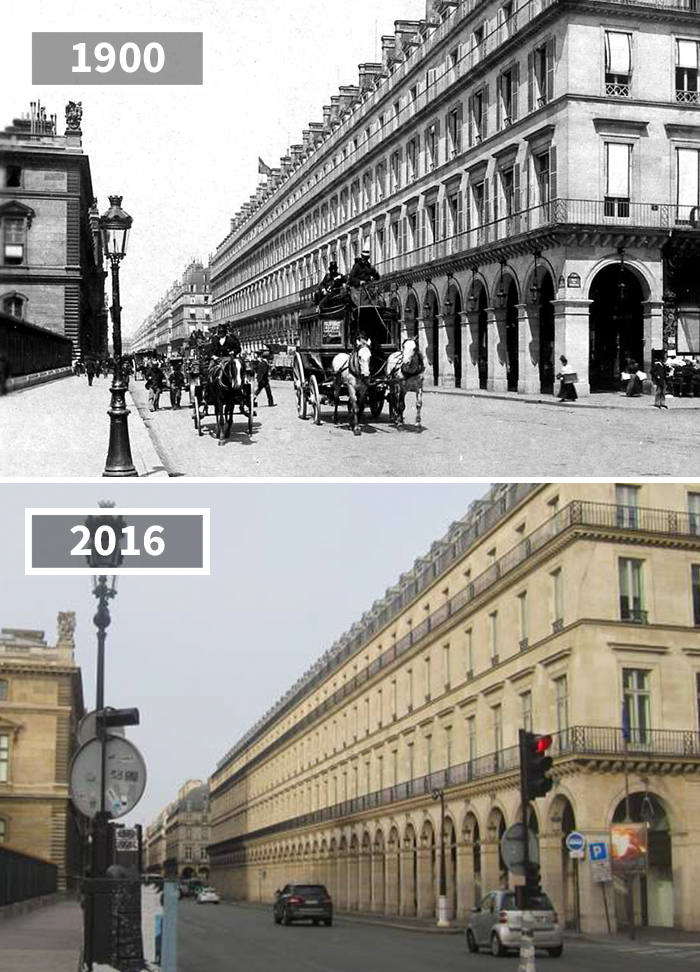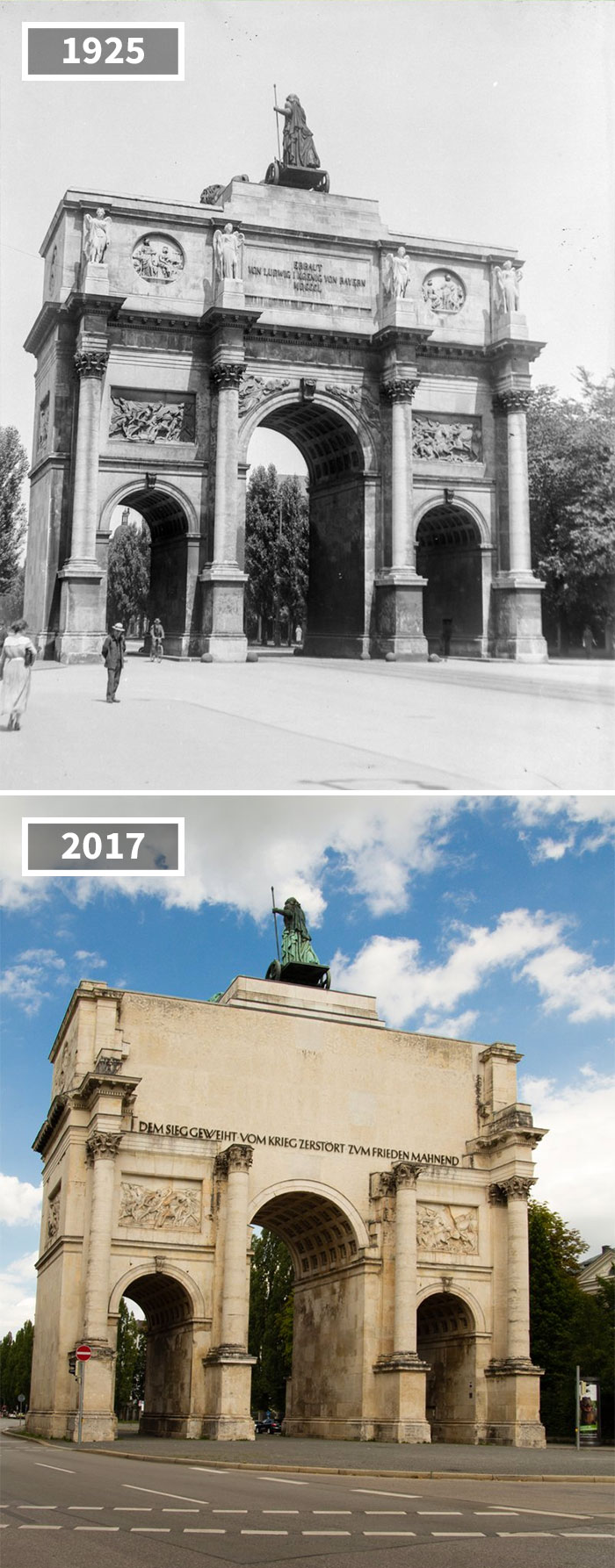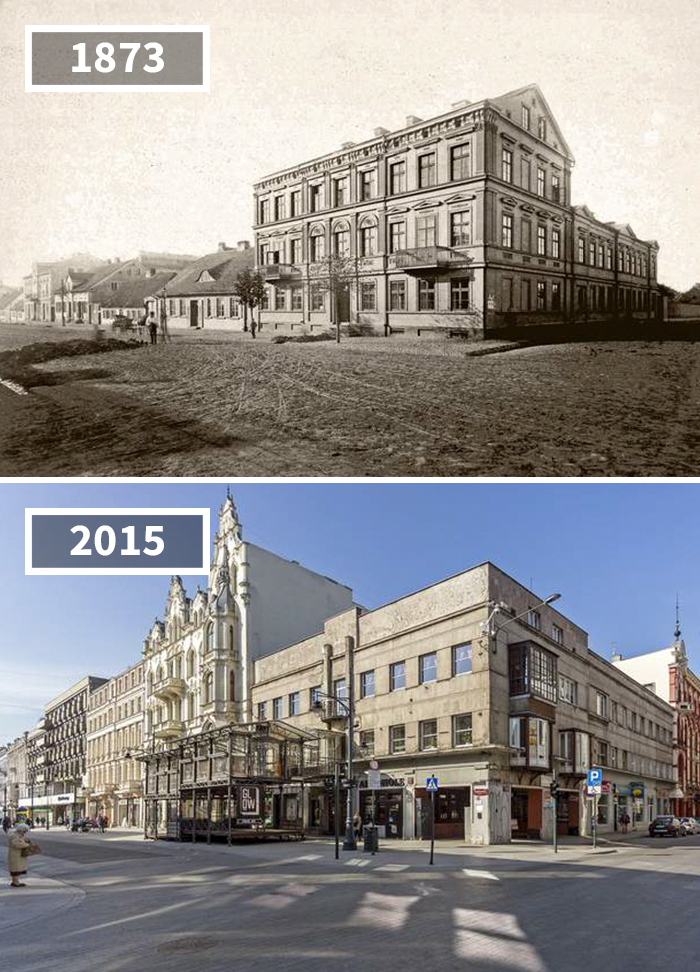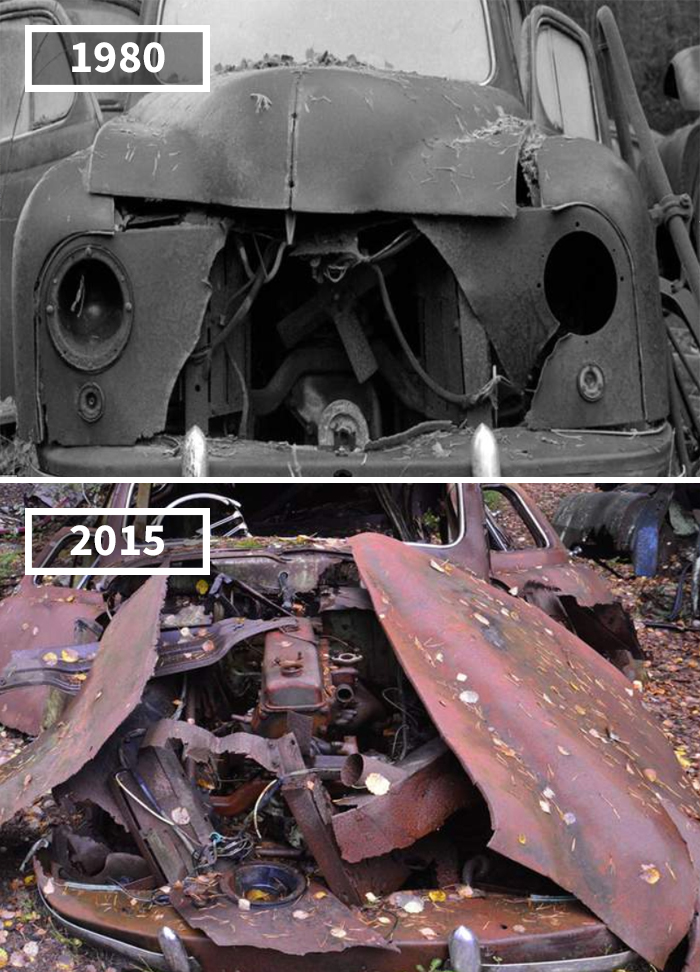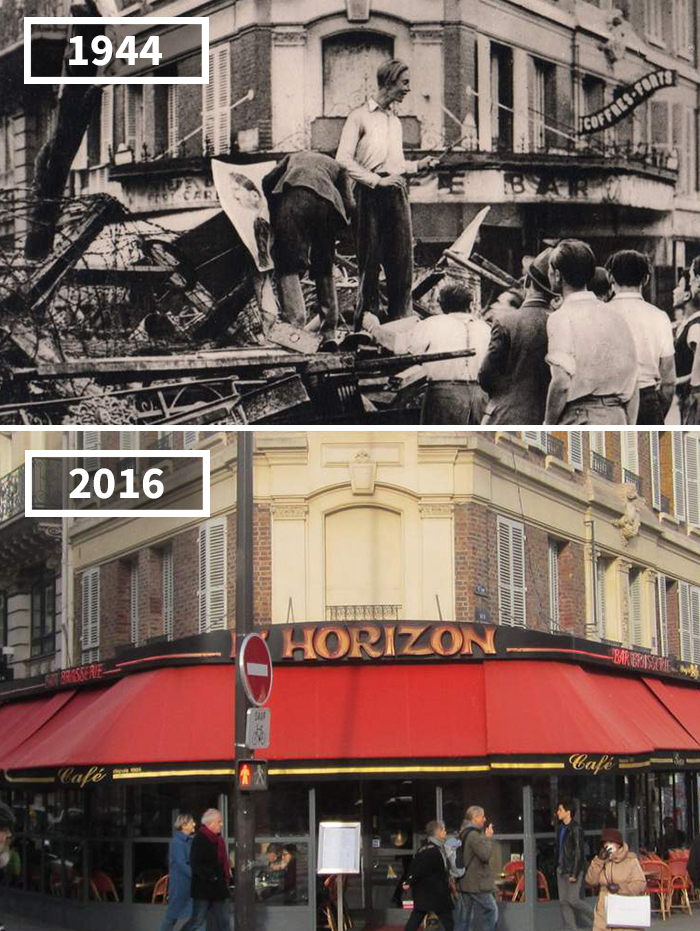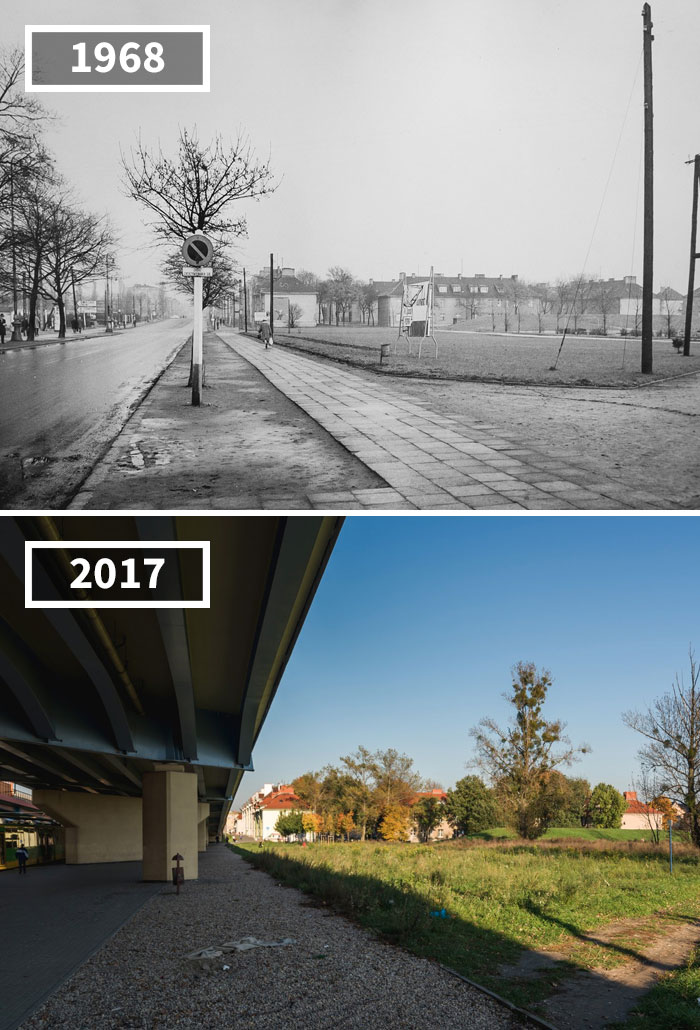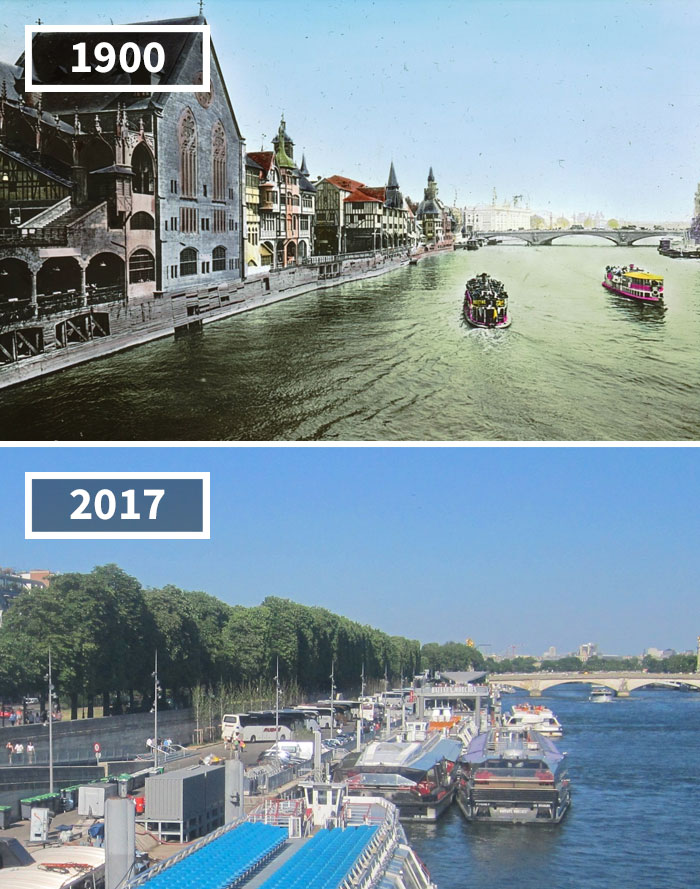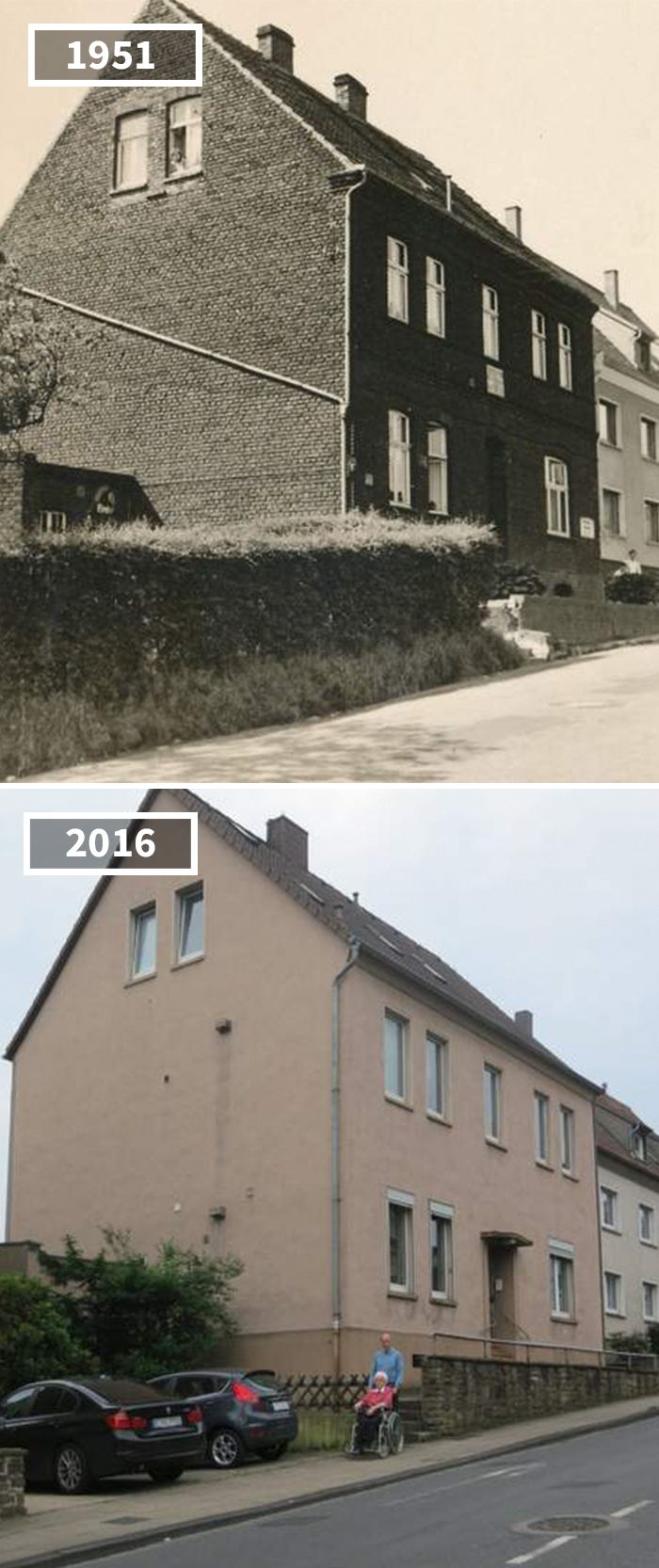We are a group of people who love re-photographies (“before and after”, “then and now”) because of their potential to tell fascinating stories with just two pictures. There wasn’t really a central hub for this kind of art so we got to work and built re.photos. It’s a website that enables people to browse hundreds of pictures or upload and align their own.
Today we would like to share our excitement with you and show you some of the best pictures (in our opinion) our users contributed. Hopefully, these comparisons are as exciting for you as they are for us!
#1 Rysstad, Norway, 1888 – 2013
#2 Seljestadjuvet, Odda, Norway, 1887 – 2014
#3 Martin Luther Statue, Dresden, Germany, 1958 – 2014
#4 Hofbräuhaus München, Germany, 1910 – 2017
#5 Quai Des Nations, Paris, France, 1900 – 2017
#6 Corner Of Ratajczaka And Św. Marcin Streets, Poznań, Poland, 1945 – 2017
#7 Pripyat, Ukraine, 1986 – 2016
#8 Chaney Glacier, USA, 1911 – 2005
#9 Engabreen Glacier, Norway, 1889 – 2010
Axel Lindahl’s picture of Engabreen from 1889 shows the foot of the glacier, where there was only ice, glacial gravel, water and bare mountainsides in a seemingly cold and hostile landscape. Now, more than 120 years later, the valley has become far more fertile. Birch forest, shore meadows, willow thickets and marshland have established themselves, while the glacier arm has retreated far back up the mountainside.
#10 Moulin Rouge, Paris, France, 1900 – 2016
#11 Horse Cart And Steam Locomotive, Mont Saint-Michel, France, 1908 – 2016
#12 Reichstag, Germany, 1945 – 2012
#13 Hammerfest, Norway, 1889 – 2004
#14 Frauenkirche Dresden, Dresden, Germany, 1897 – 2010
#15 Tour Eiffel, Paris, France, 1910 – 2016
#16 Marcin Street, Poznań, Poland, 1945 – 2017
#17 Osnabrück, Germany, 1904 – 2016
#18 The Karlstor, Munich, Germany, 1946 – 2017
#19 Osnabrück Central Railway Station, Germany, 1965 – 2015
#20 Nowomiejska Street, Łódź, Poland, 1874 – 2016
#21 Paris, France, 1900 – 2017
#22 Szyperska Street, Poznań, Poland, 2006 – 2017
#23 Kjeåsen Railway Bridge, Kjeåsen, Norway, 1927 – 2008
The Seine bank during the world’s fair of 1900.
Next to the Eiffel Tower, the “Globe Céleste” was one of the main attractions. It was a monumental heavenly globe of 45 meters in diameter, in which visitors could sit in a chair, while panoramas of the solar system were passed over. The ball was carried by 4 pillars, between which stairs and elevators allowed the visitors the ascent.
In the “Marerama”, the building with the four corner towers to the left, visitors were simulated to be on the deck of a ship with a panorama of the large Mediterranean ports.
The exhibition pavilions located directly on the shore on the left were dedicated to navigation, trade and navigation.
#25 Palais Im Großen Garten Dresden, Germany, 1900 – 2005
#26 St. Matthew Evangelical Church, Łódź, Poland, 1937 – 2017
#27 Osnabrück, Germany, 1953 – 2015
#28 St-Gervais-Et-St-Protais, France, 1918 – 2017
The 1911 photo shows Grinnell Glacier poised at the top of the waterfalls in the foreground and joined with what is now called Salamander Glacier in the background. Grinnell described this wall of ice as being 1,000 feet high in 1887. As of 2008, that wall of ice is gone and Grinnell Glacier is not even visible in the contemporary photograph. Instead, it is behind the buff-colored ridge just above the waterfalls. Salamander Glacier lies along the Garden Wall below the ridgeline. This glacier is thinning in the middle so rapidly that it will probably be in two pieces within a few years. To the upper left is the small, rounded glacier, Gem Glacier, that until recently had not shown signs of retreat. It, too, is now becoming smaller.
#30 Karlstor, Munich, Germany , 1910 – 2017
#31 Köln Domplatte, Germany, 1945 – 2011
#32 Gymnasium, Osnabrück, Germany, 1870 – 2015
#33 Łódź, Poland, 1887 – 2015
#34 Hôtel De Ville, France, 1871 – 2014
#35 Notre Dame, Paris, France, 1850 – 2016
#36 Rue De La Paix, Paris, France, 1871 – 2016
Barricade of revolutionary Paris Commune in 1871 in the rue de la Paix (confluence Place Vendôme).
In spring of 1871, it comes for an uprising in Paris of the workers and soldiers of the National Guard against the conservative government. In spontaneous elections a Paris city council (commune) is formed, whose members (communards) try to enforce the transformation of France into a socialist union of sovereign communities against the will of the central government. After bloody clashes the communards finally gain control of Paris.











